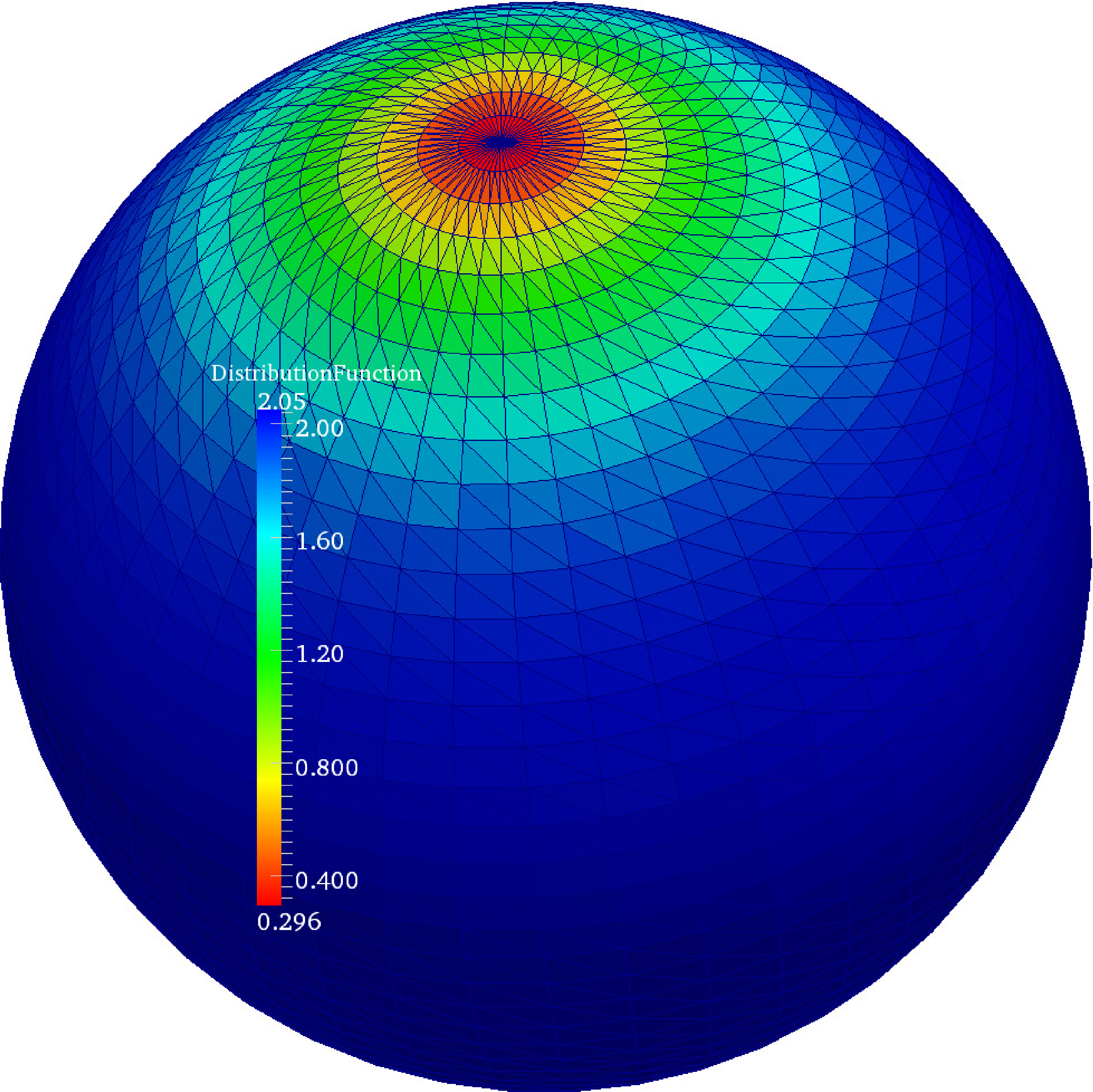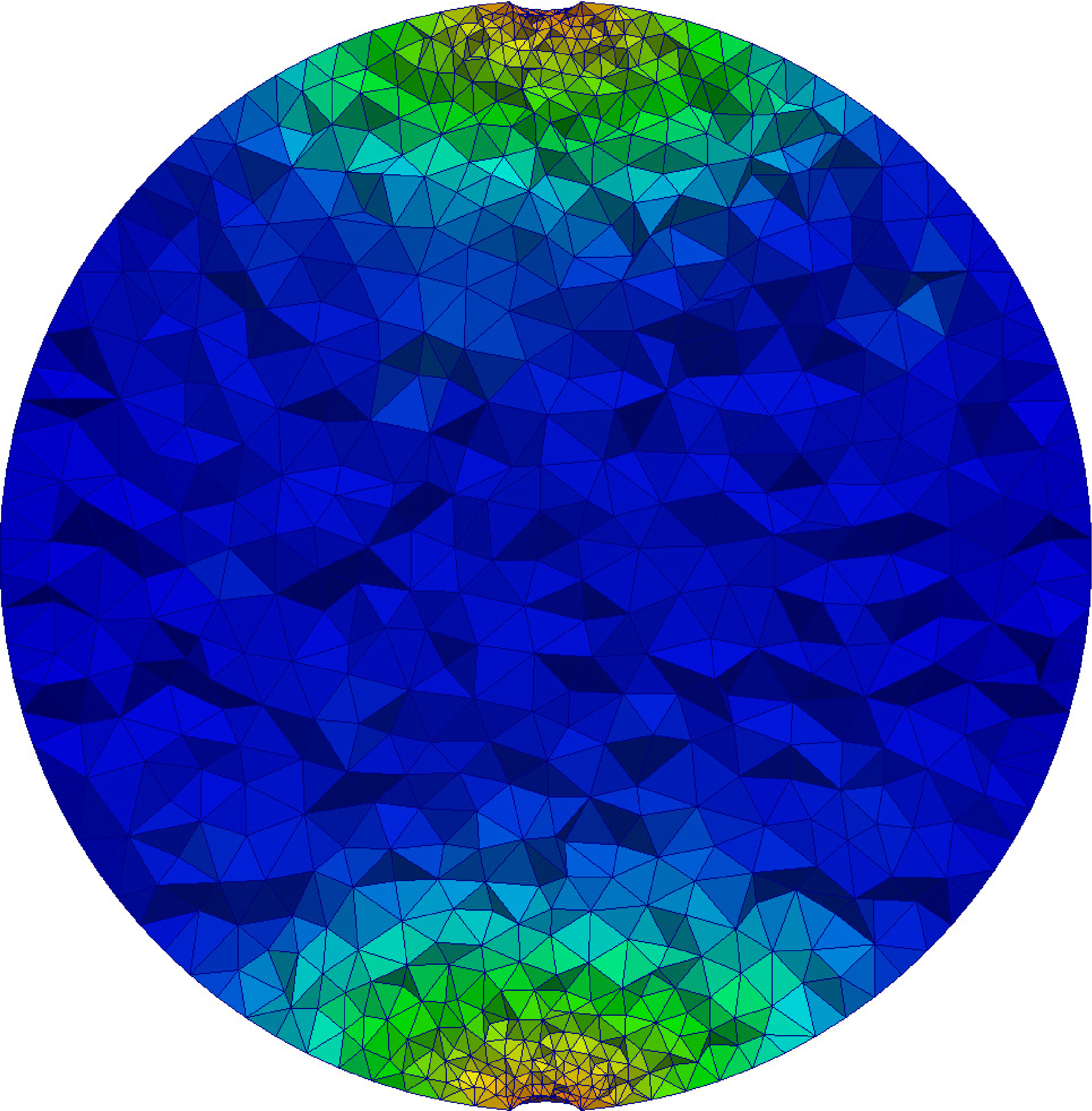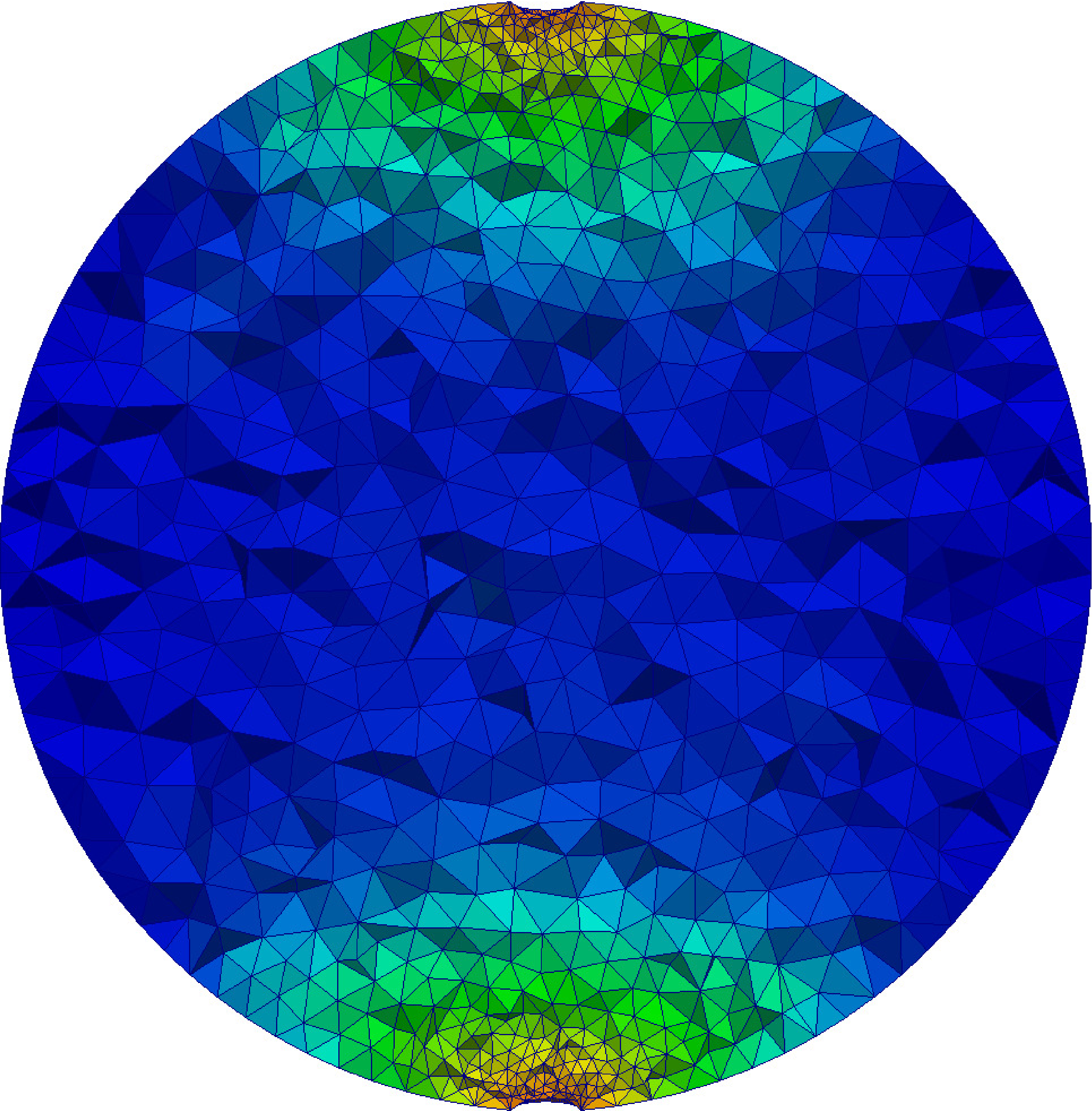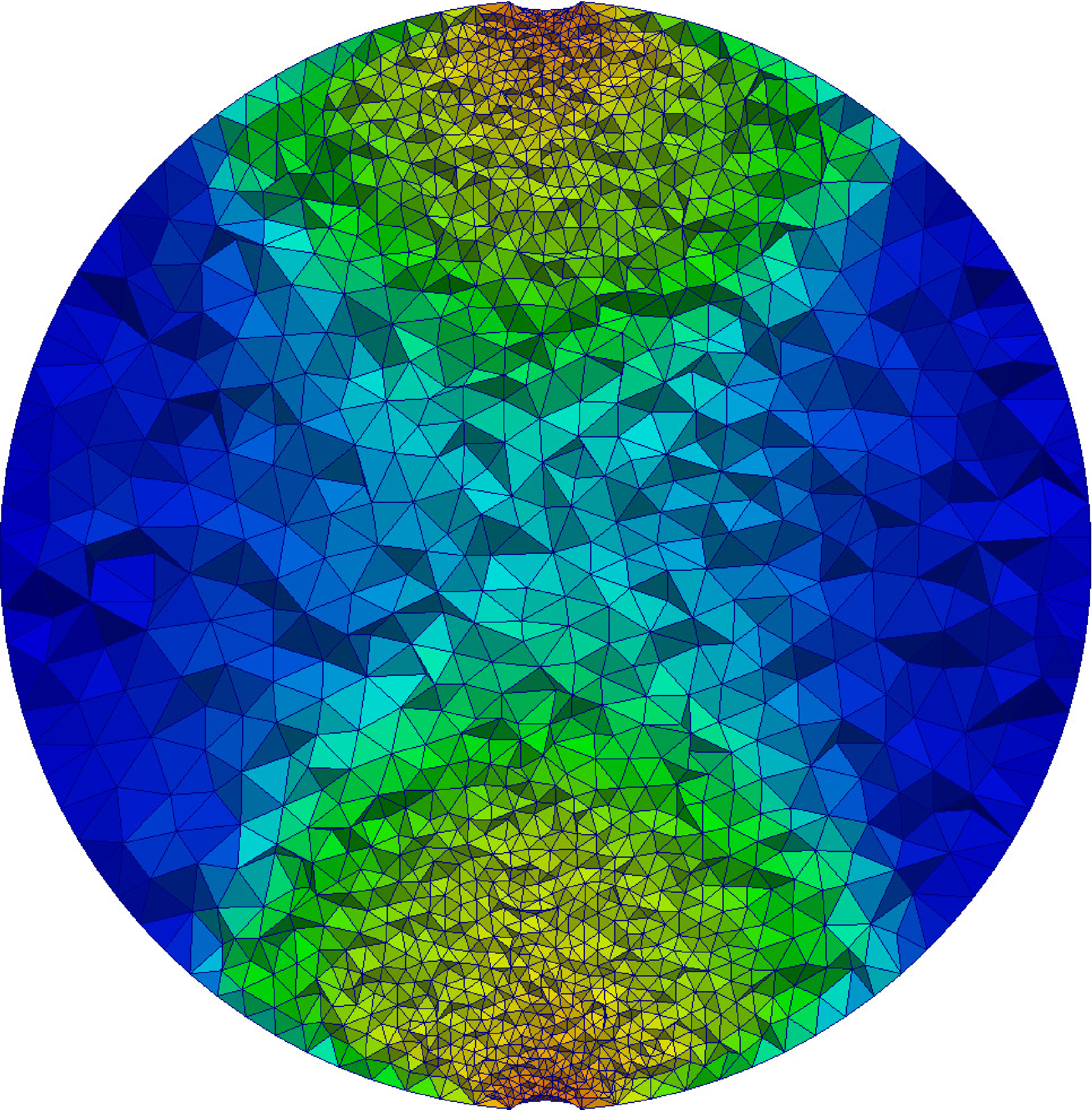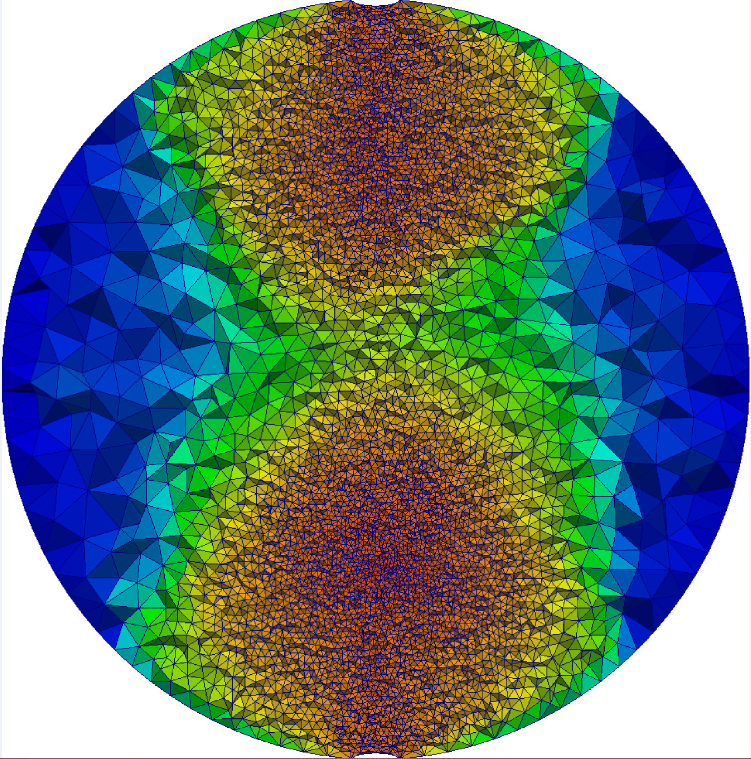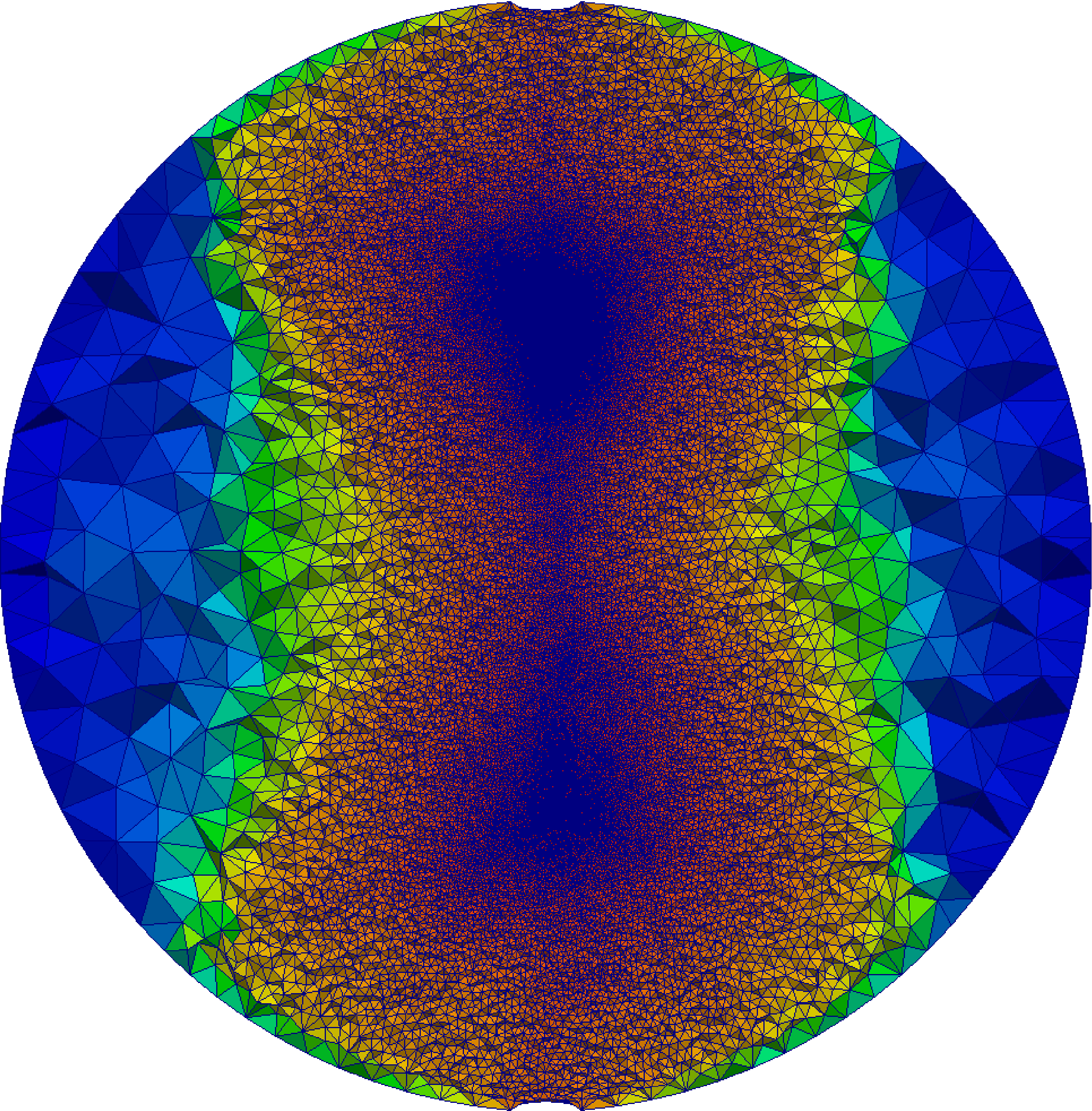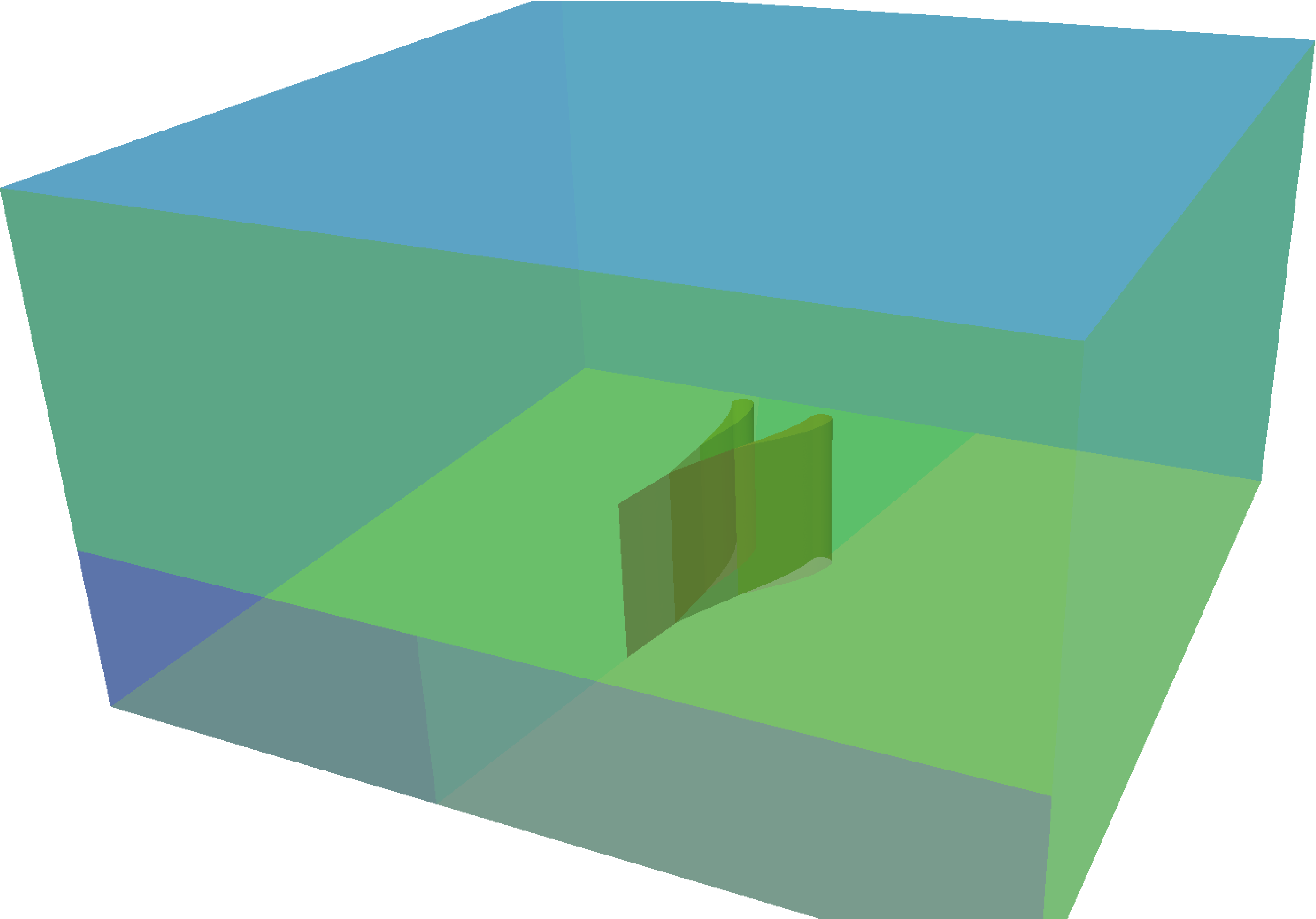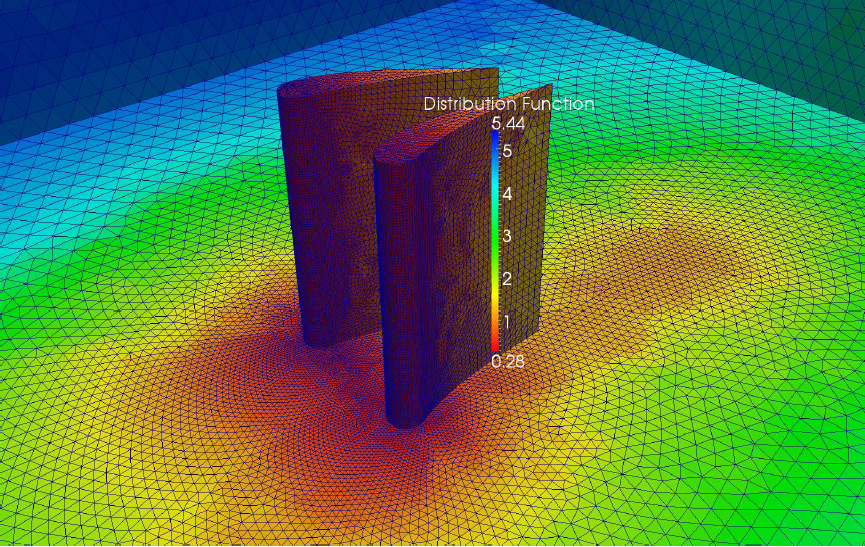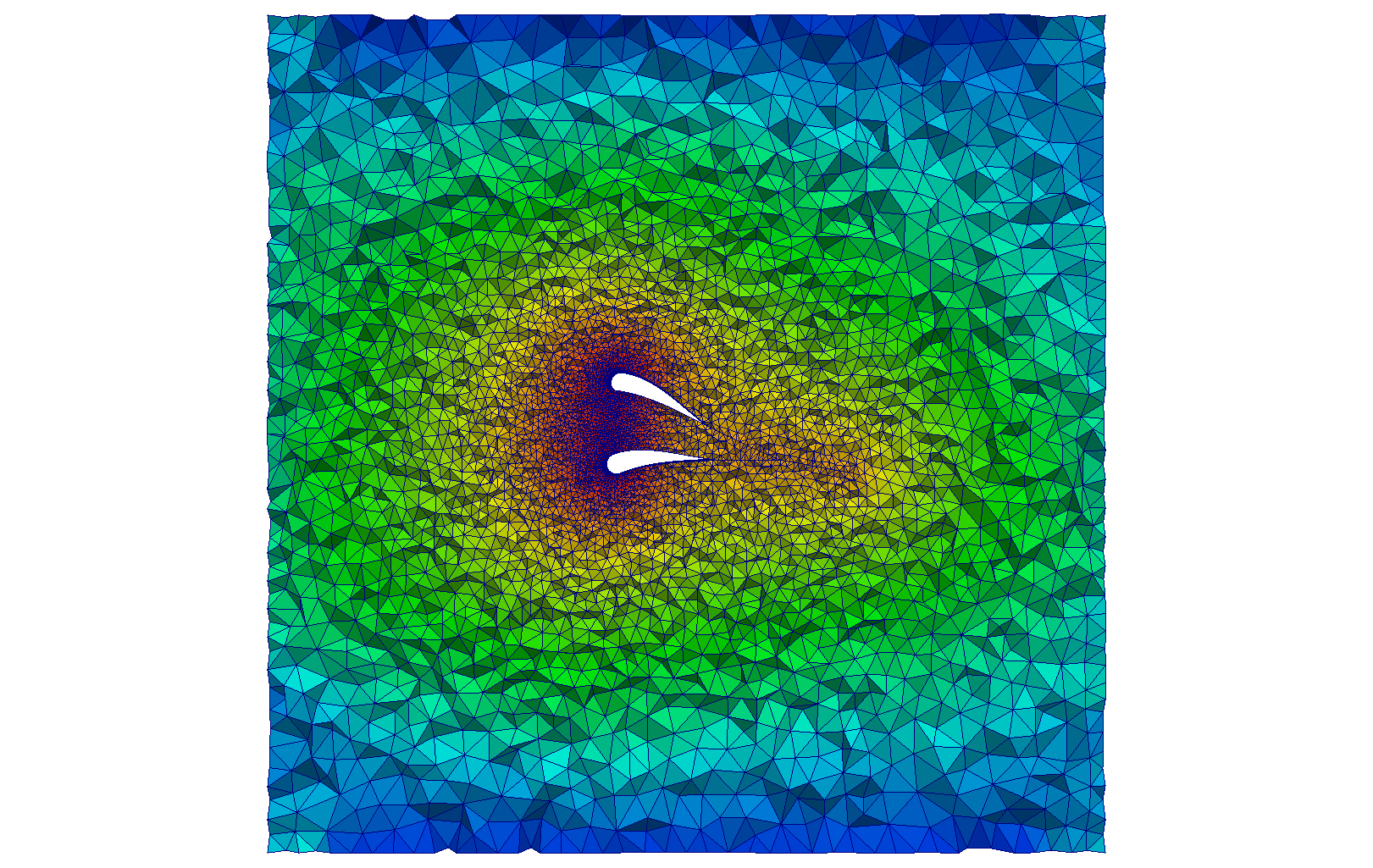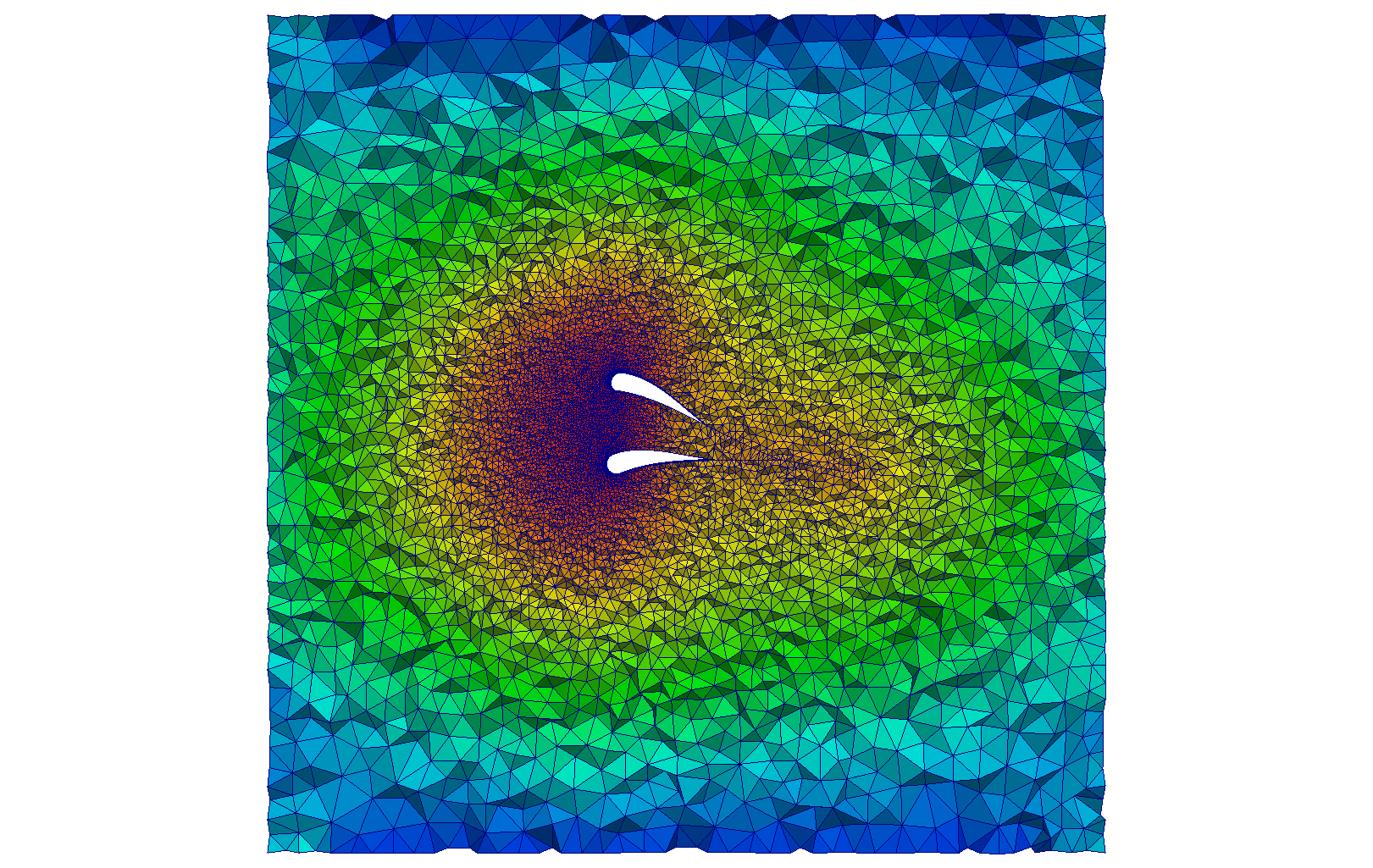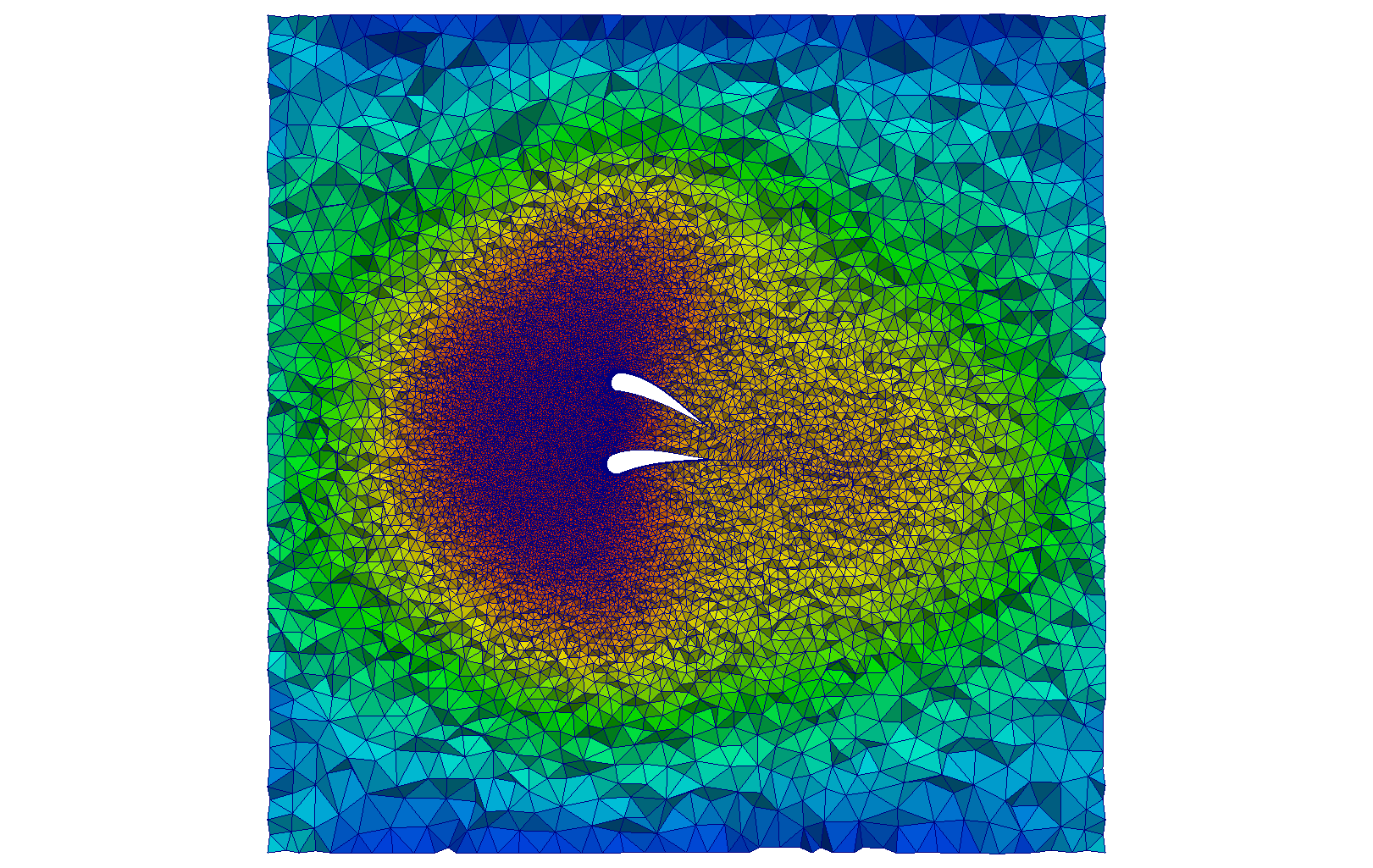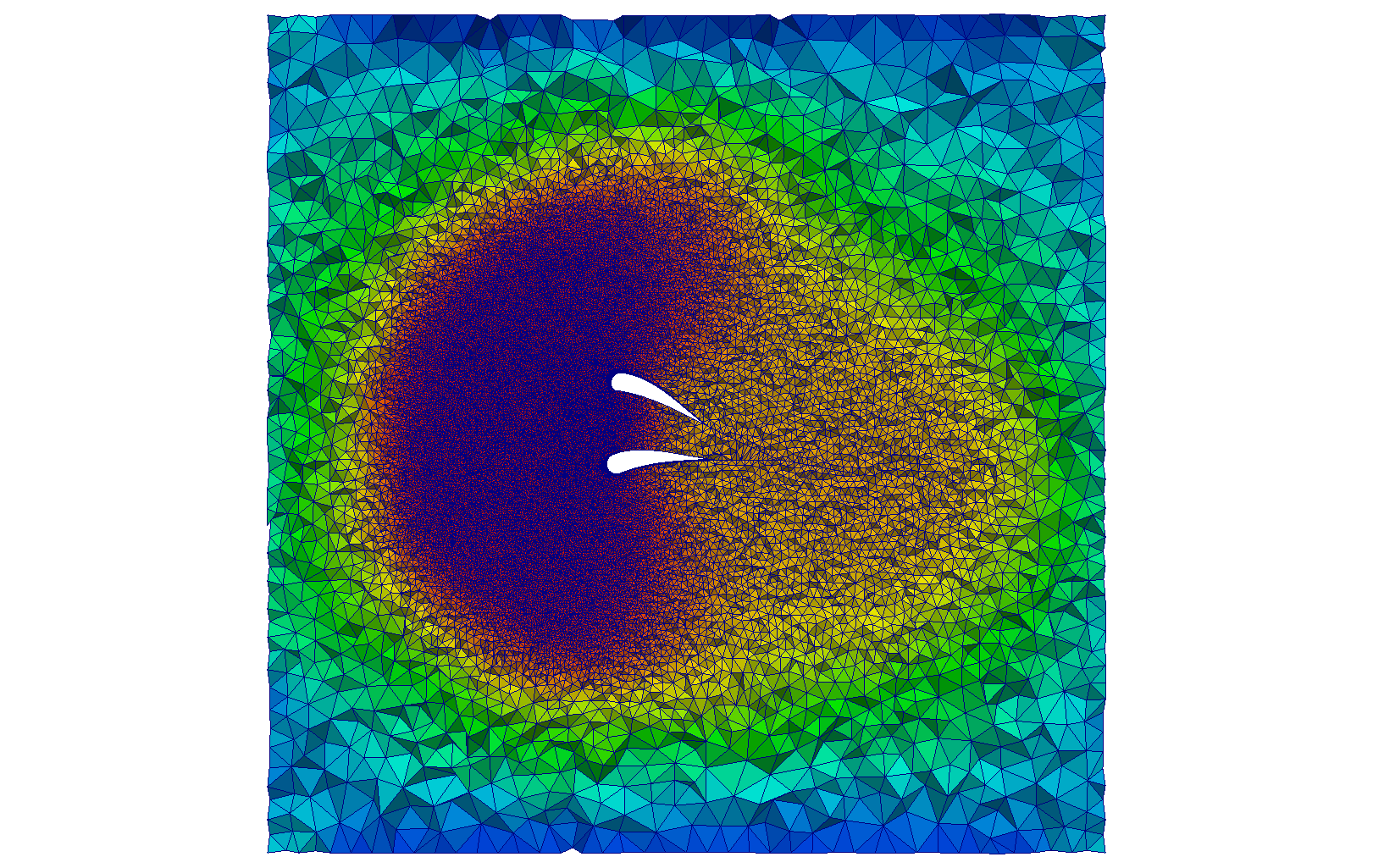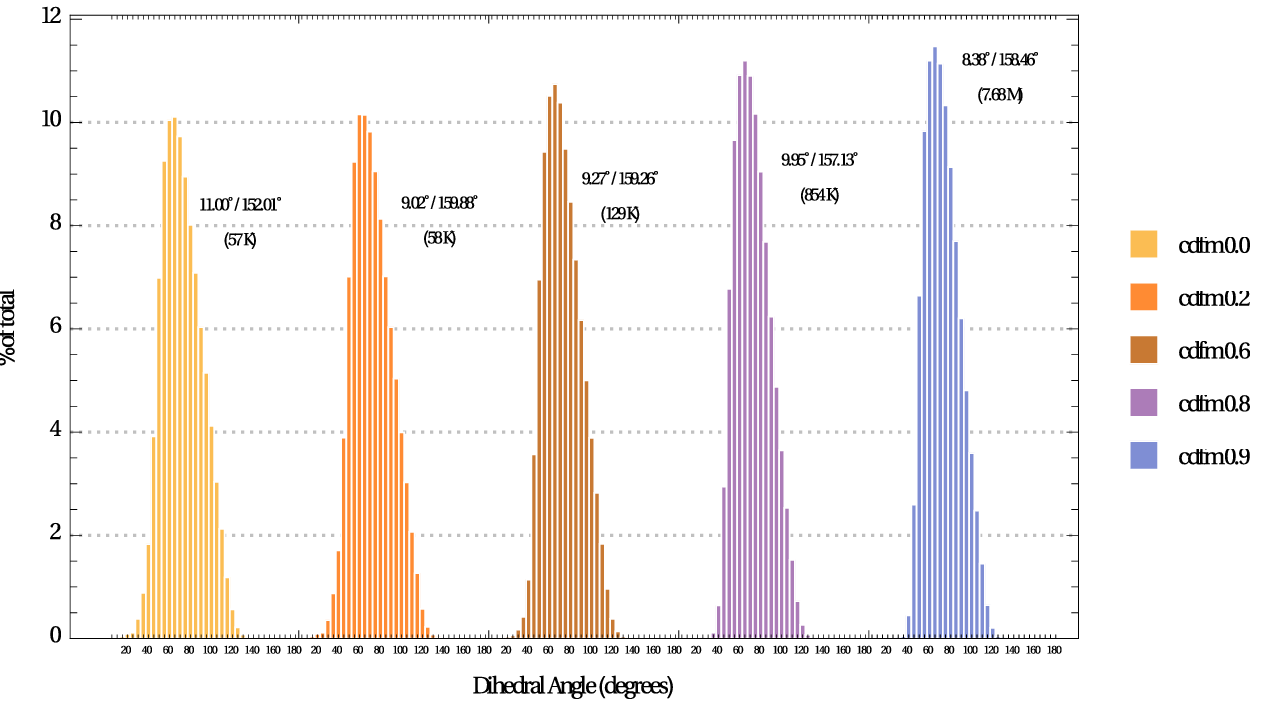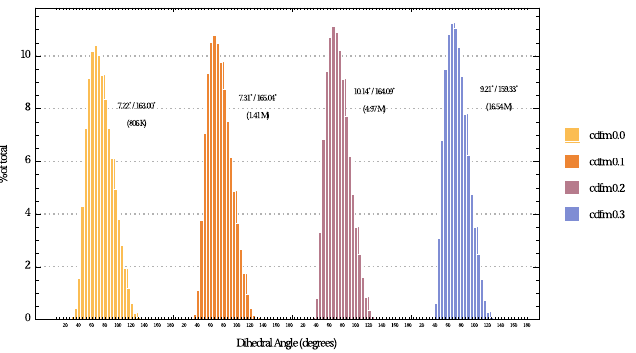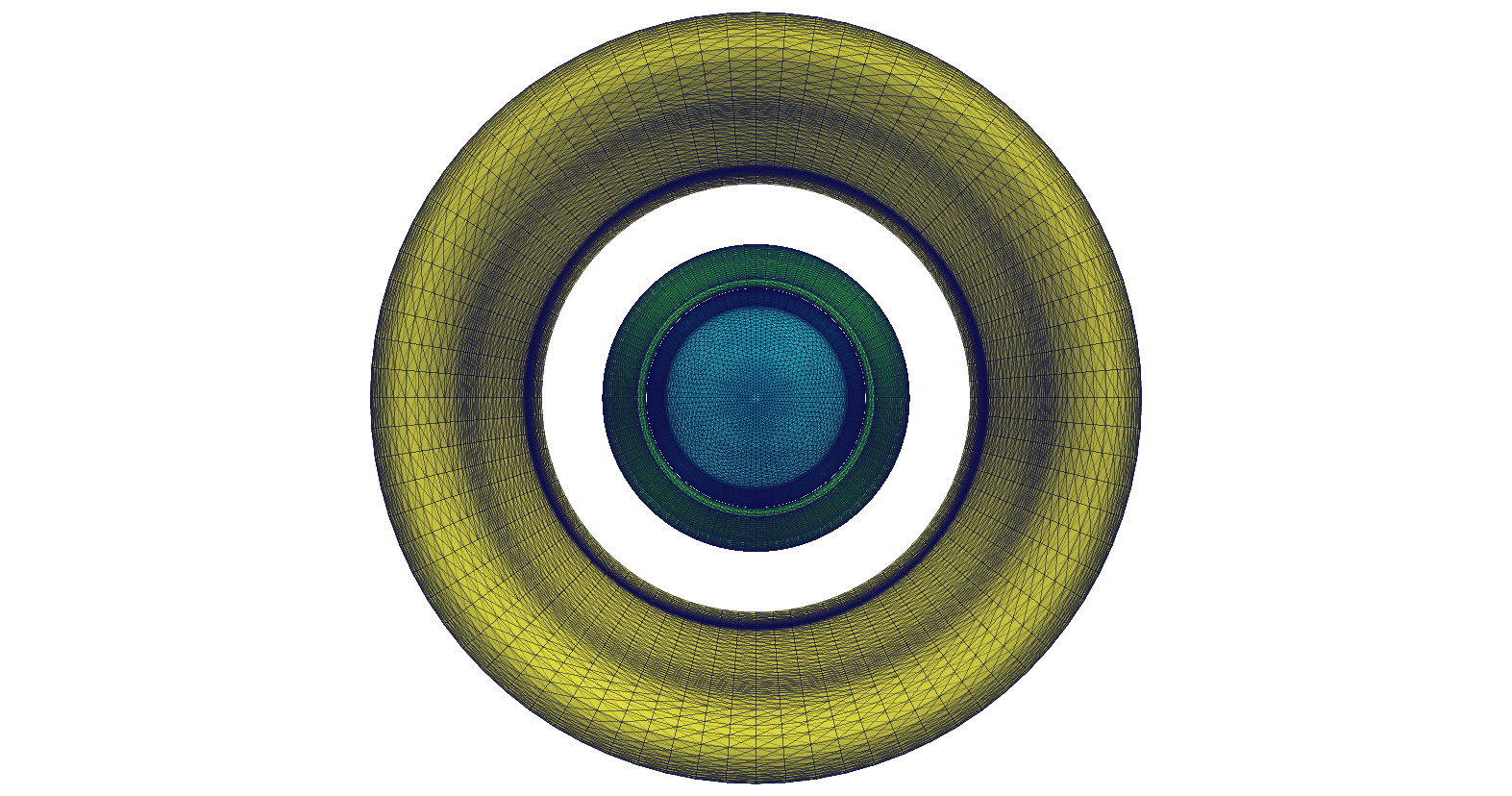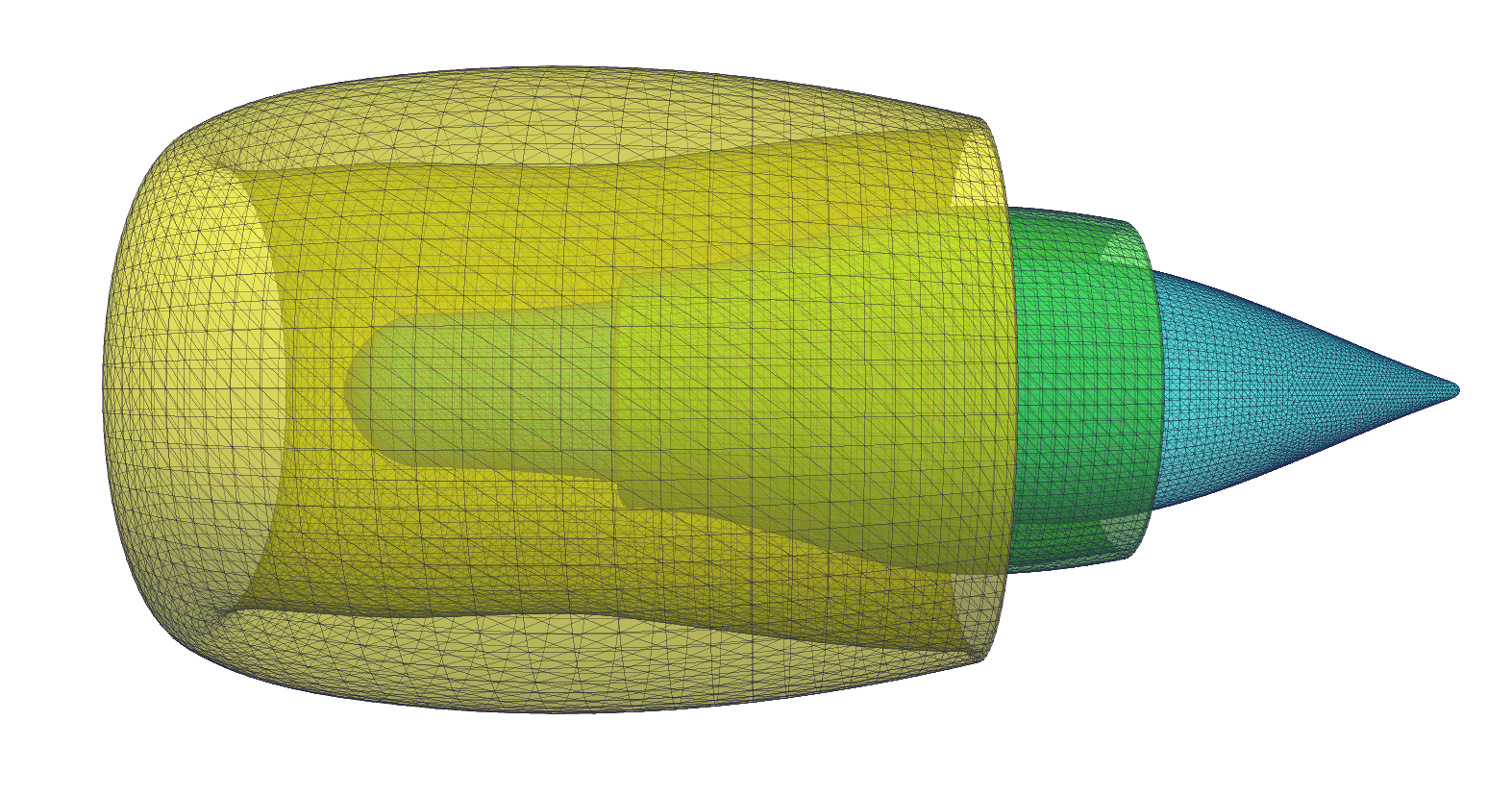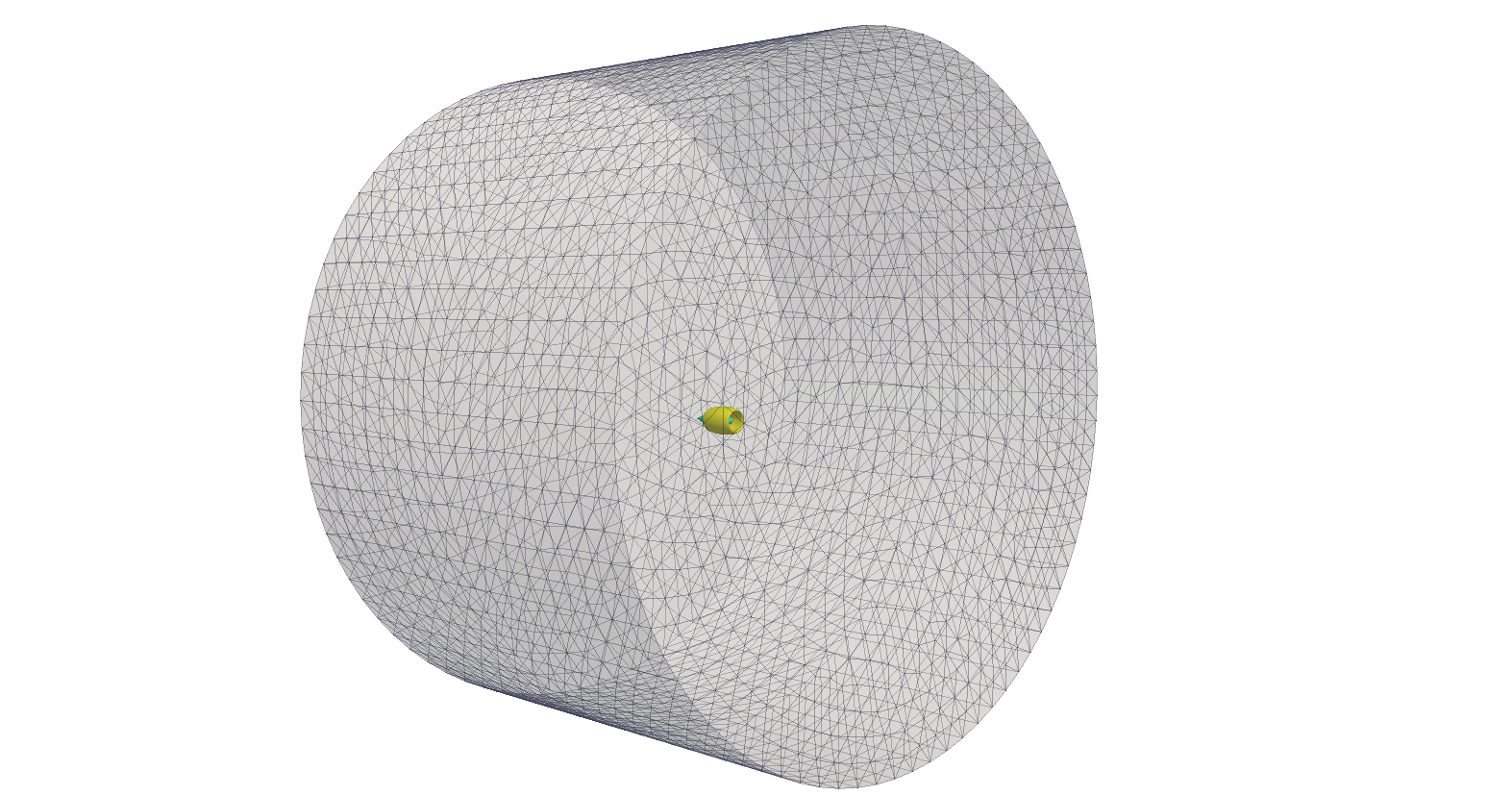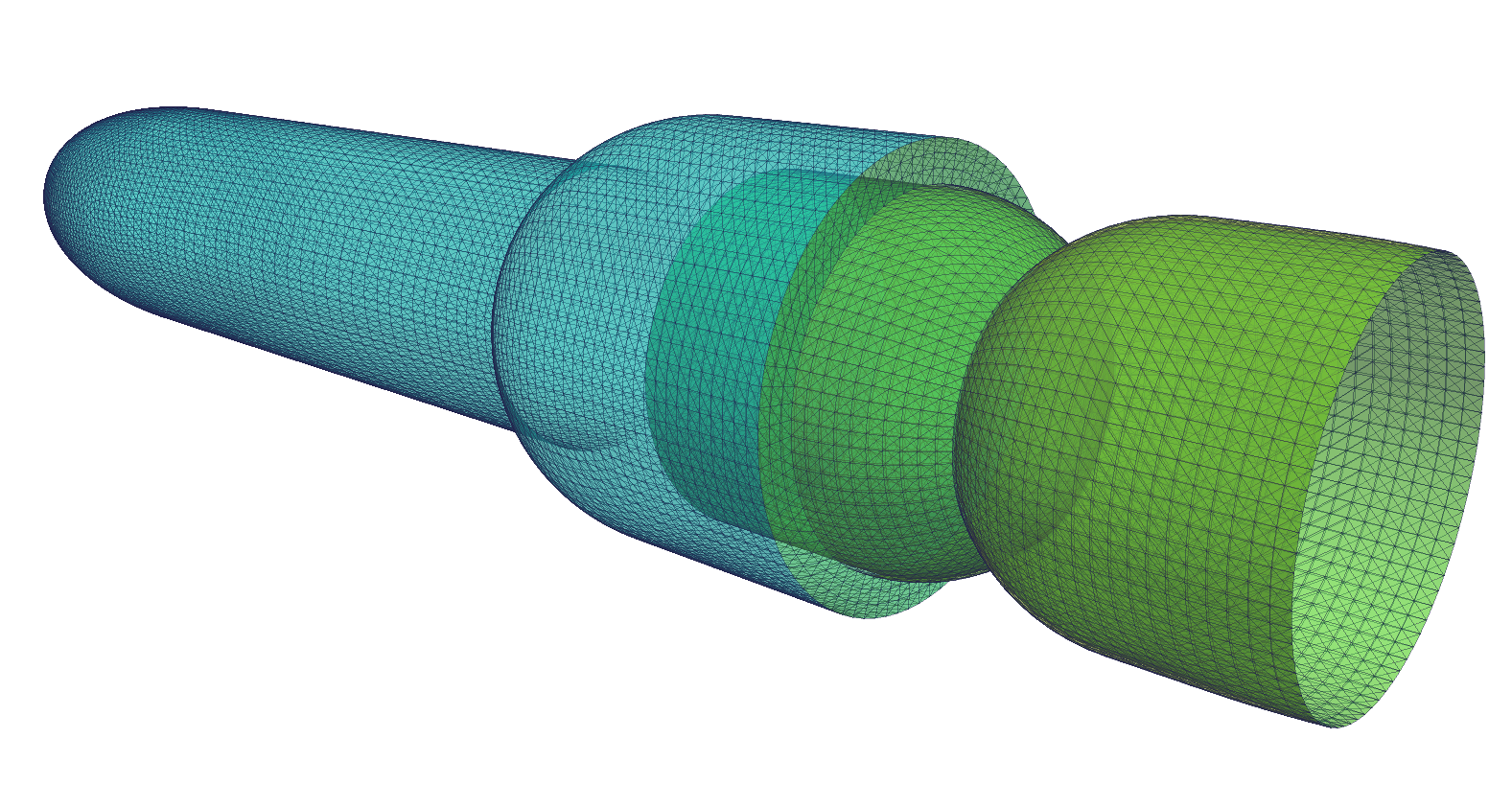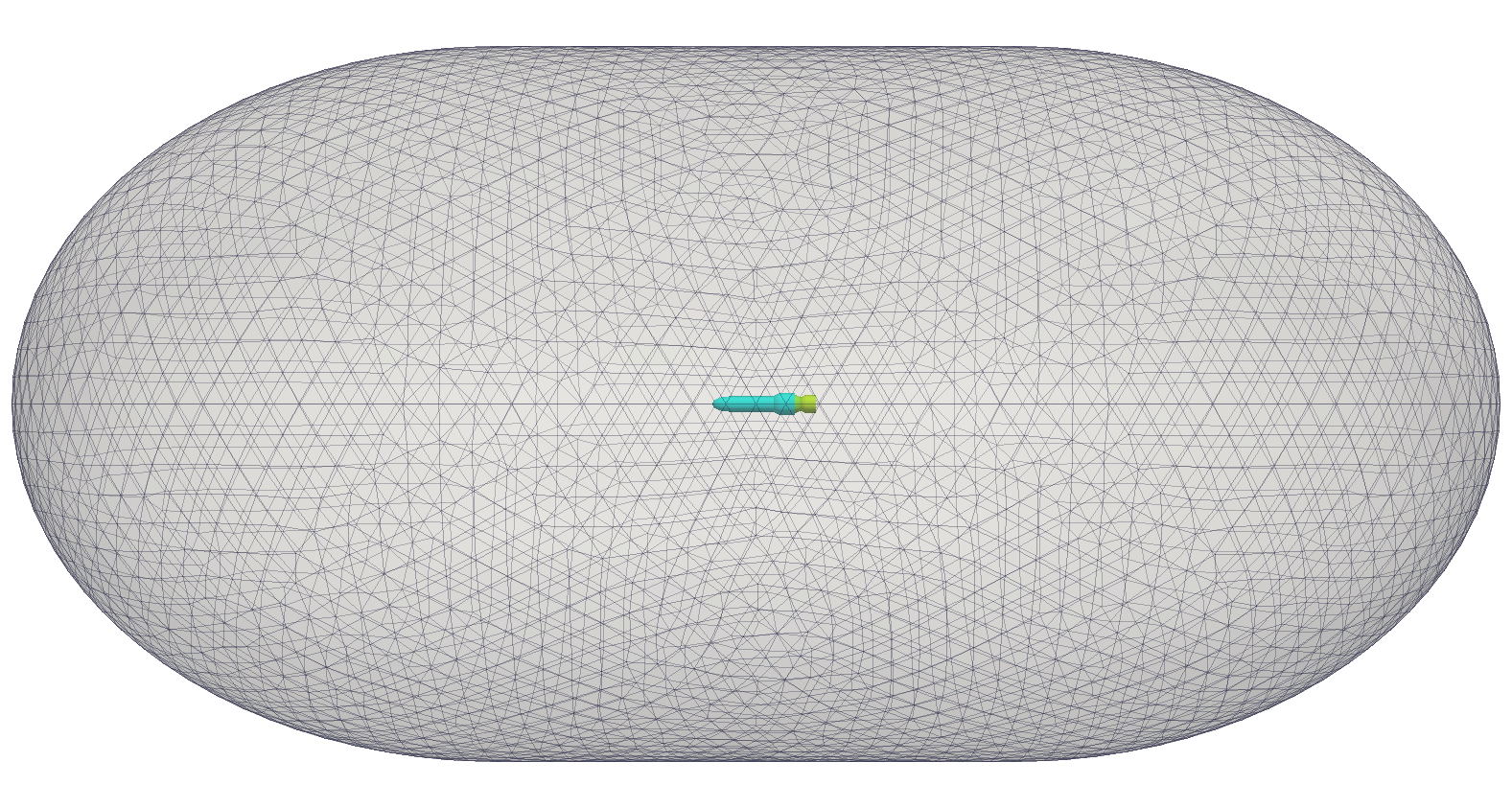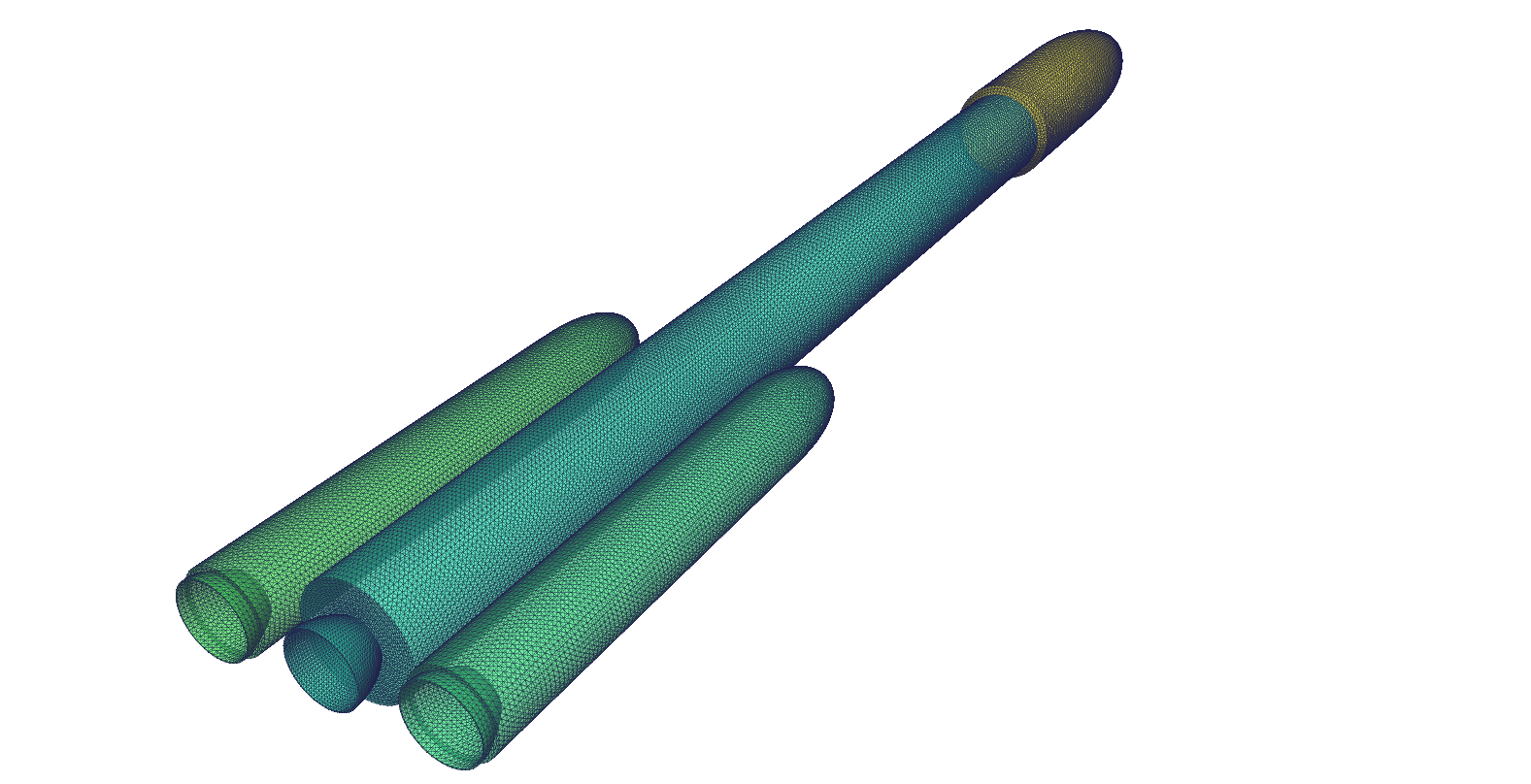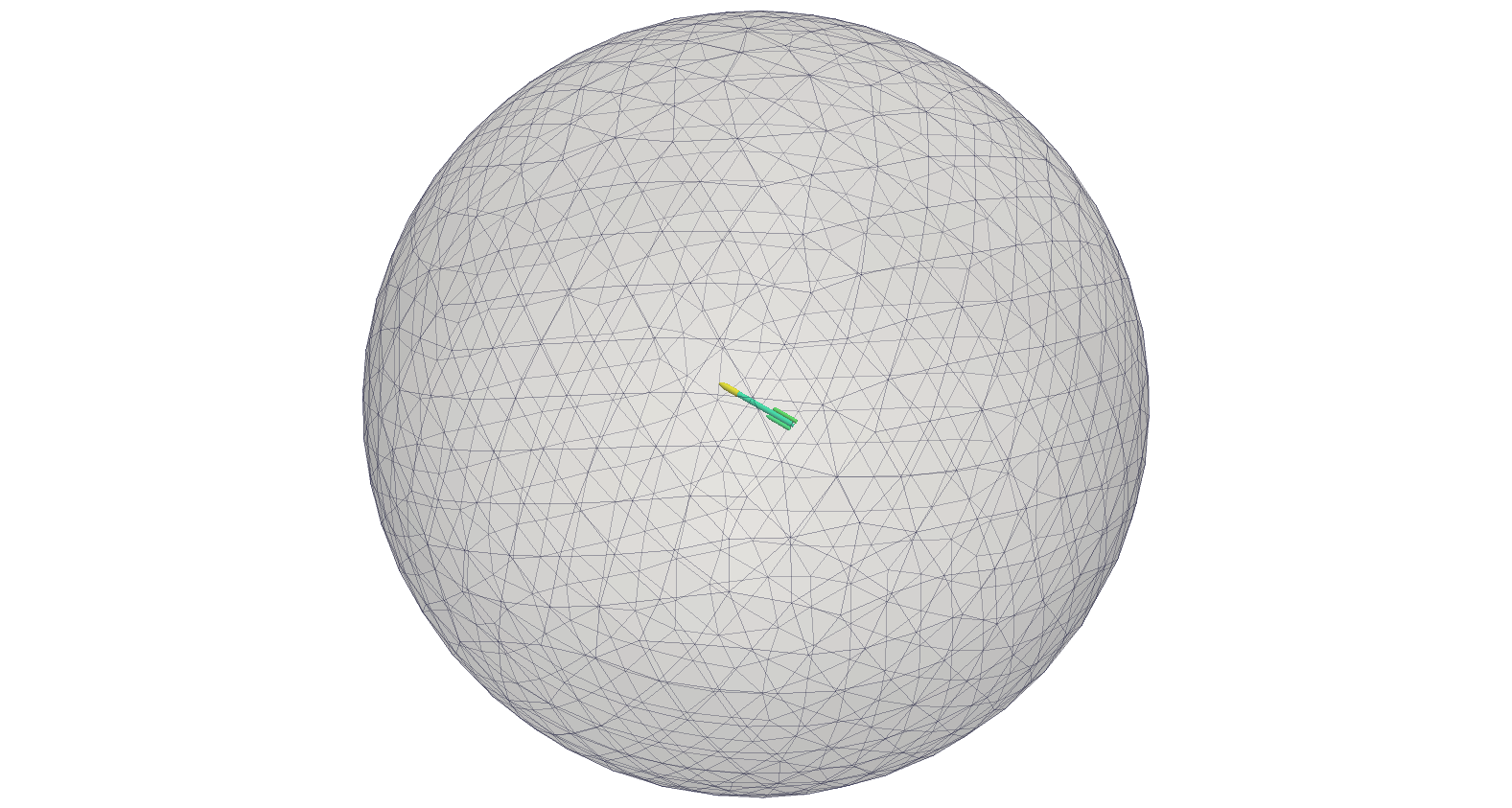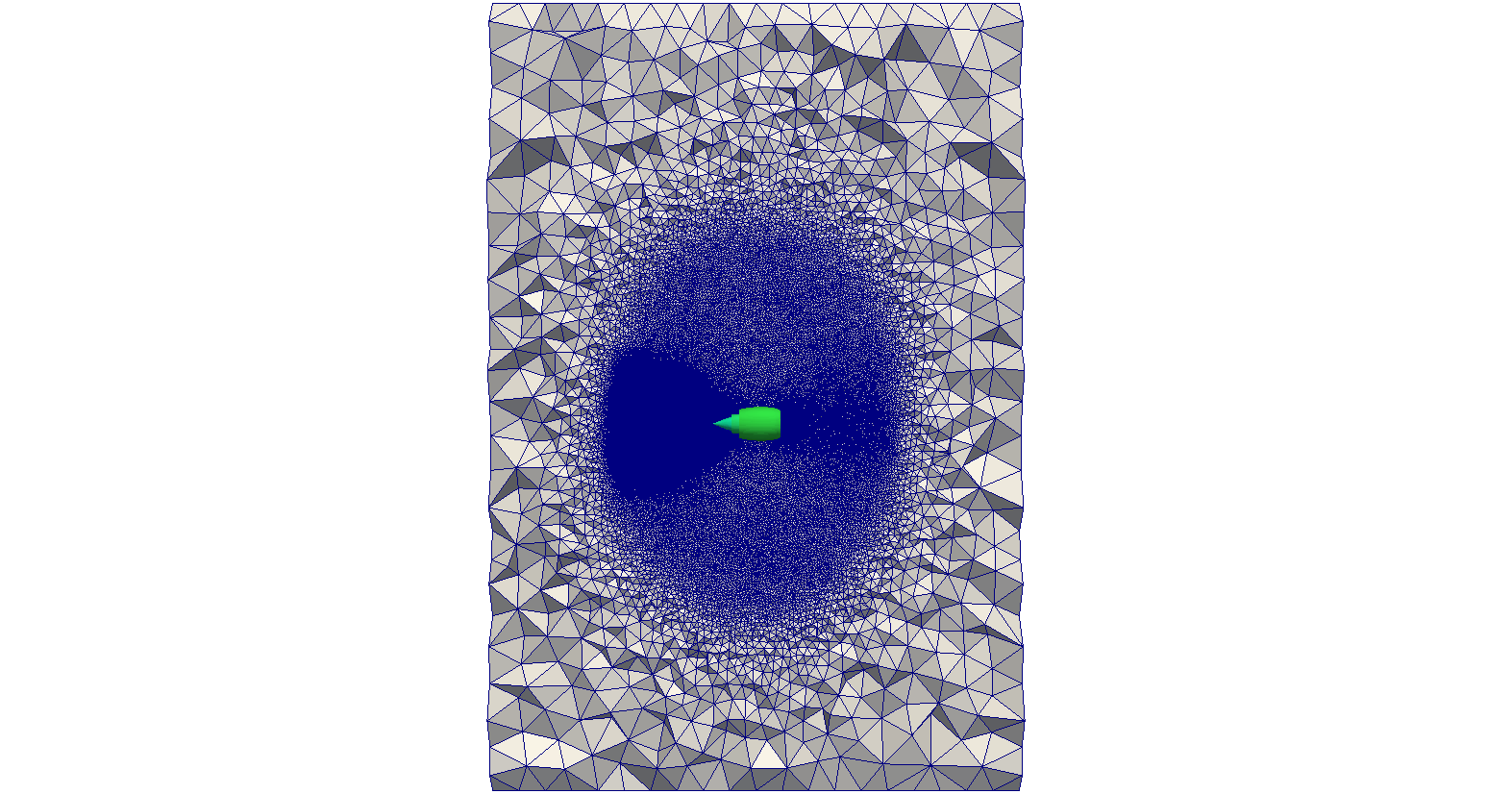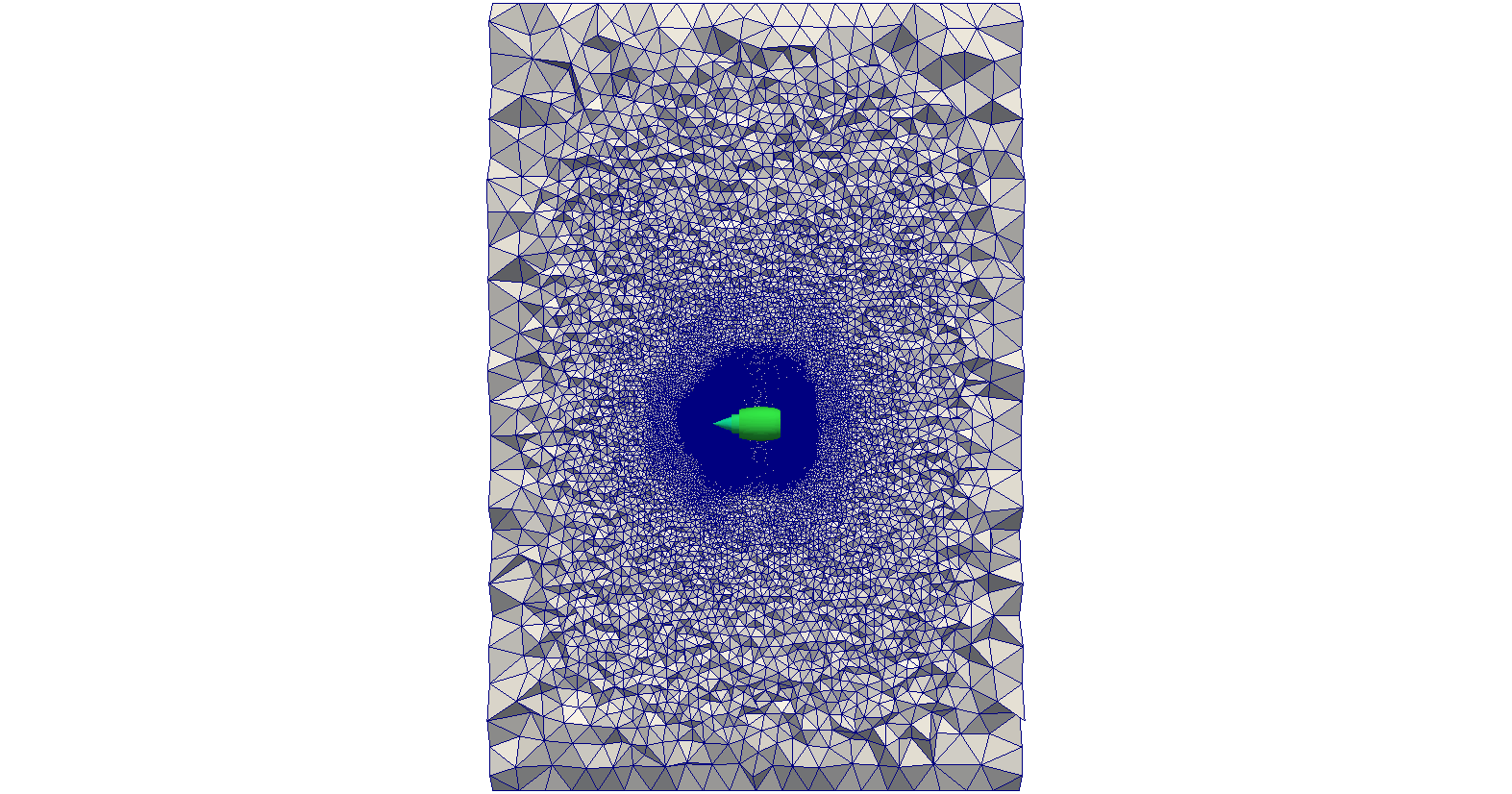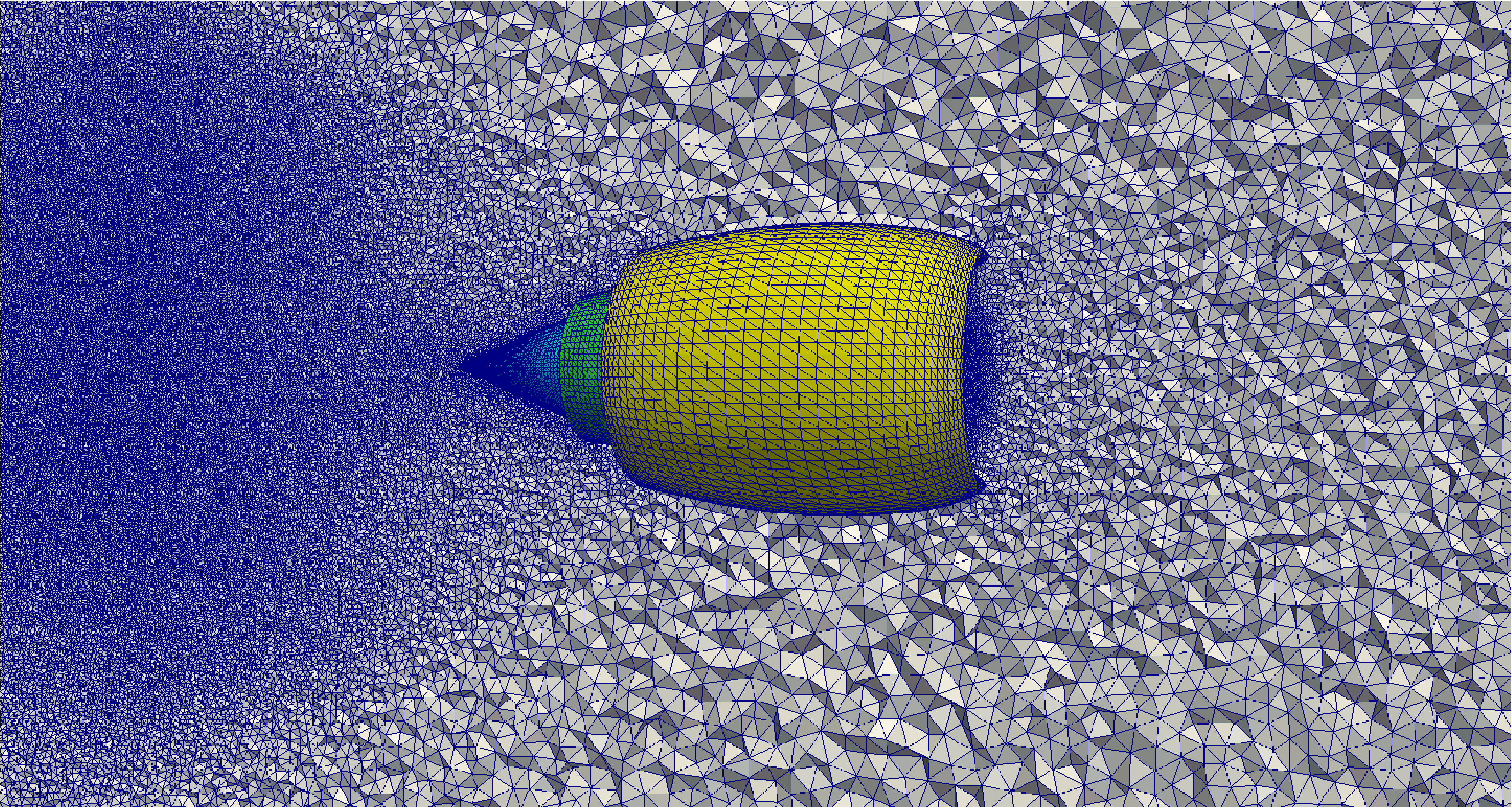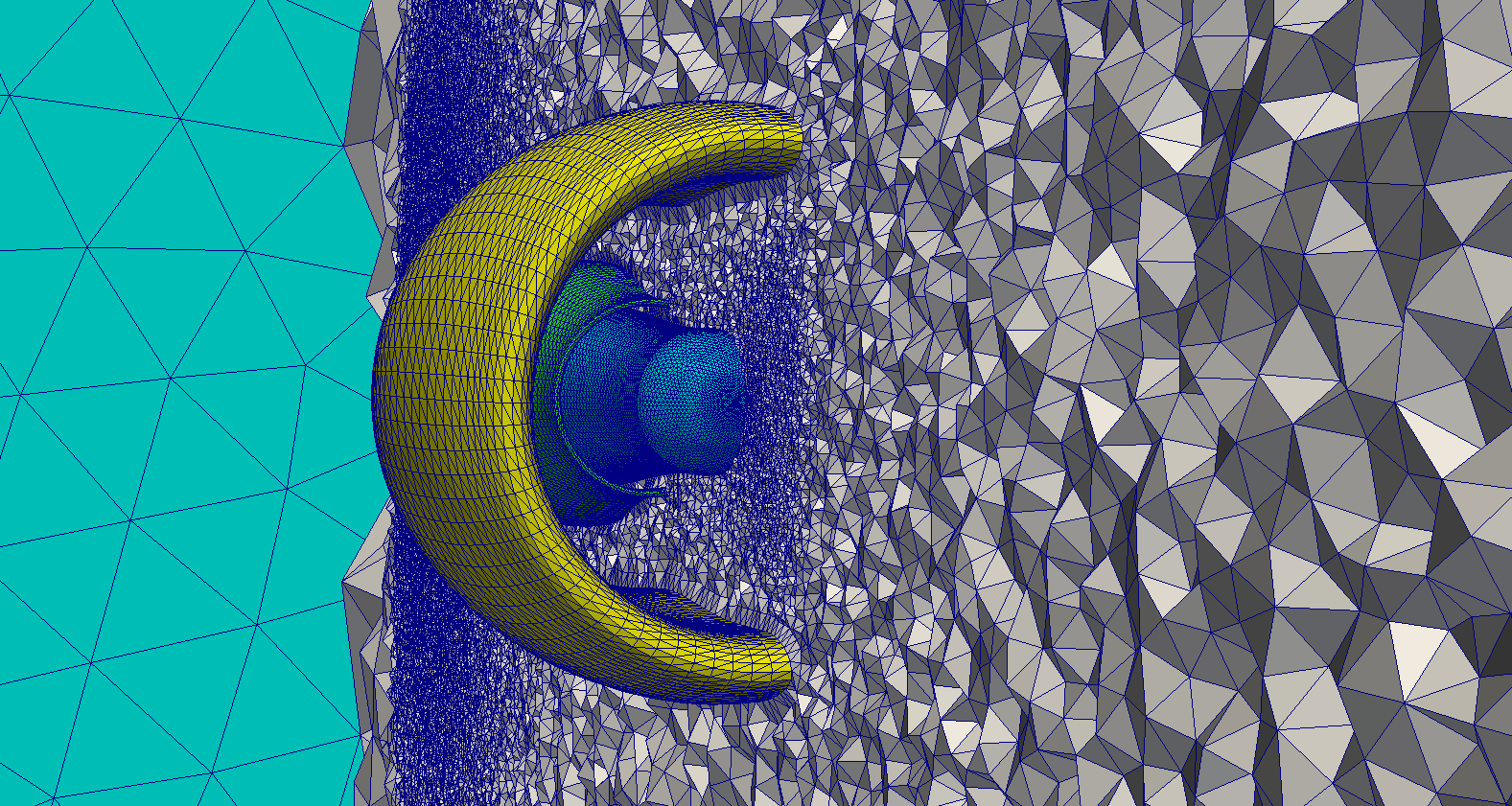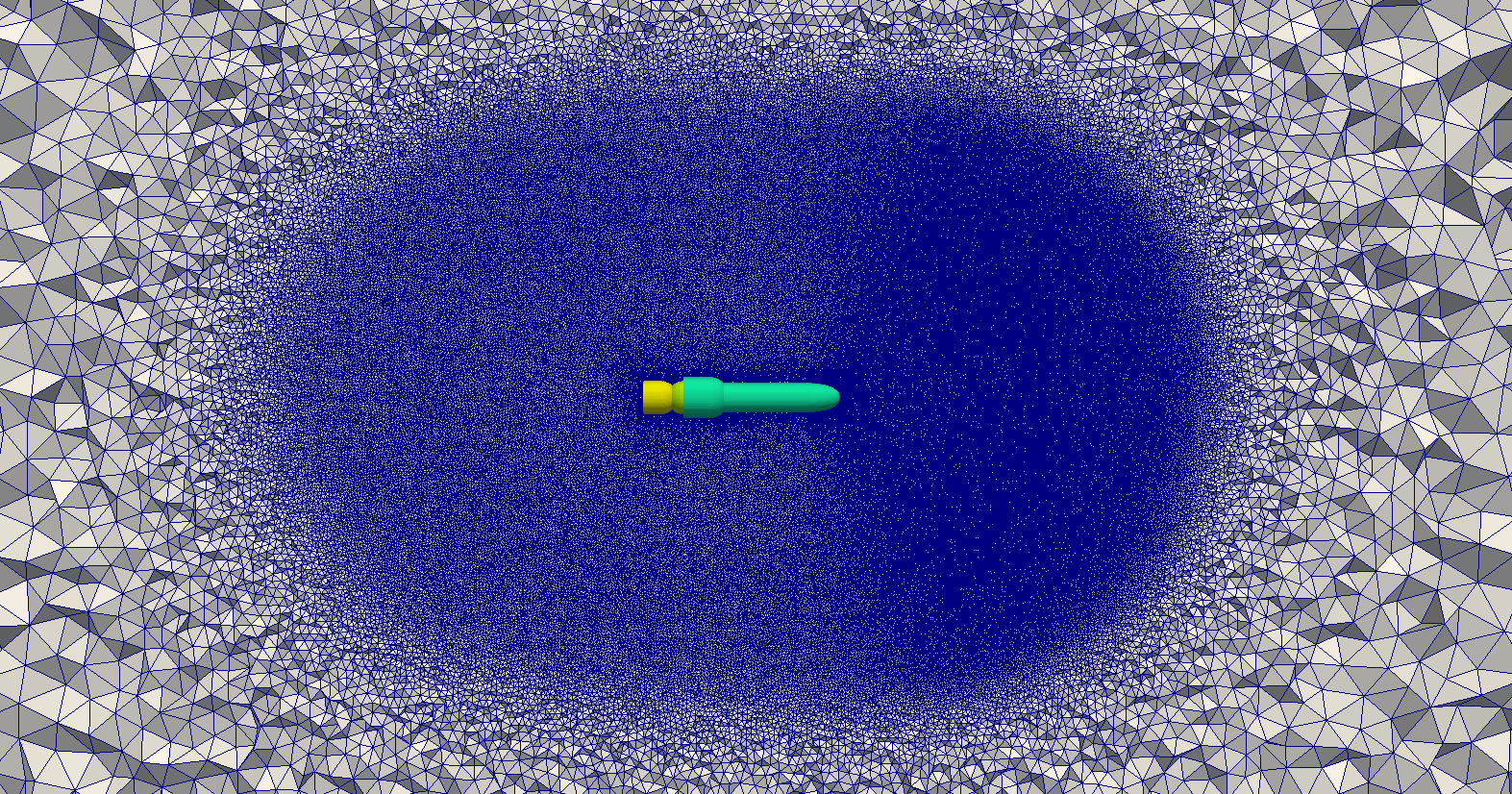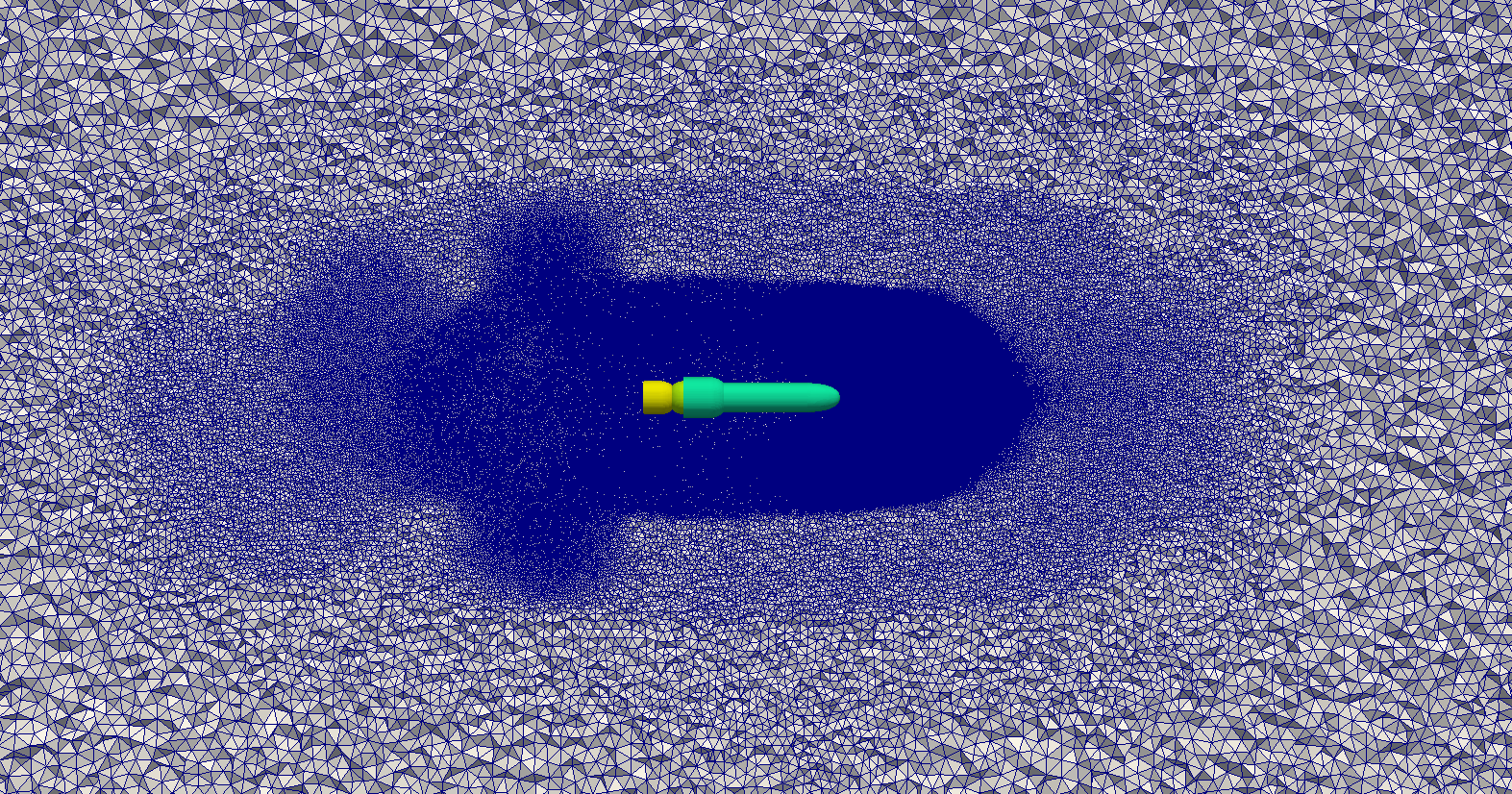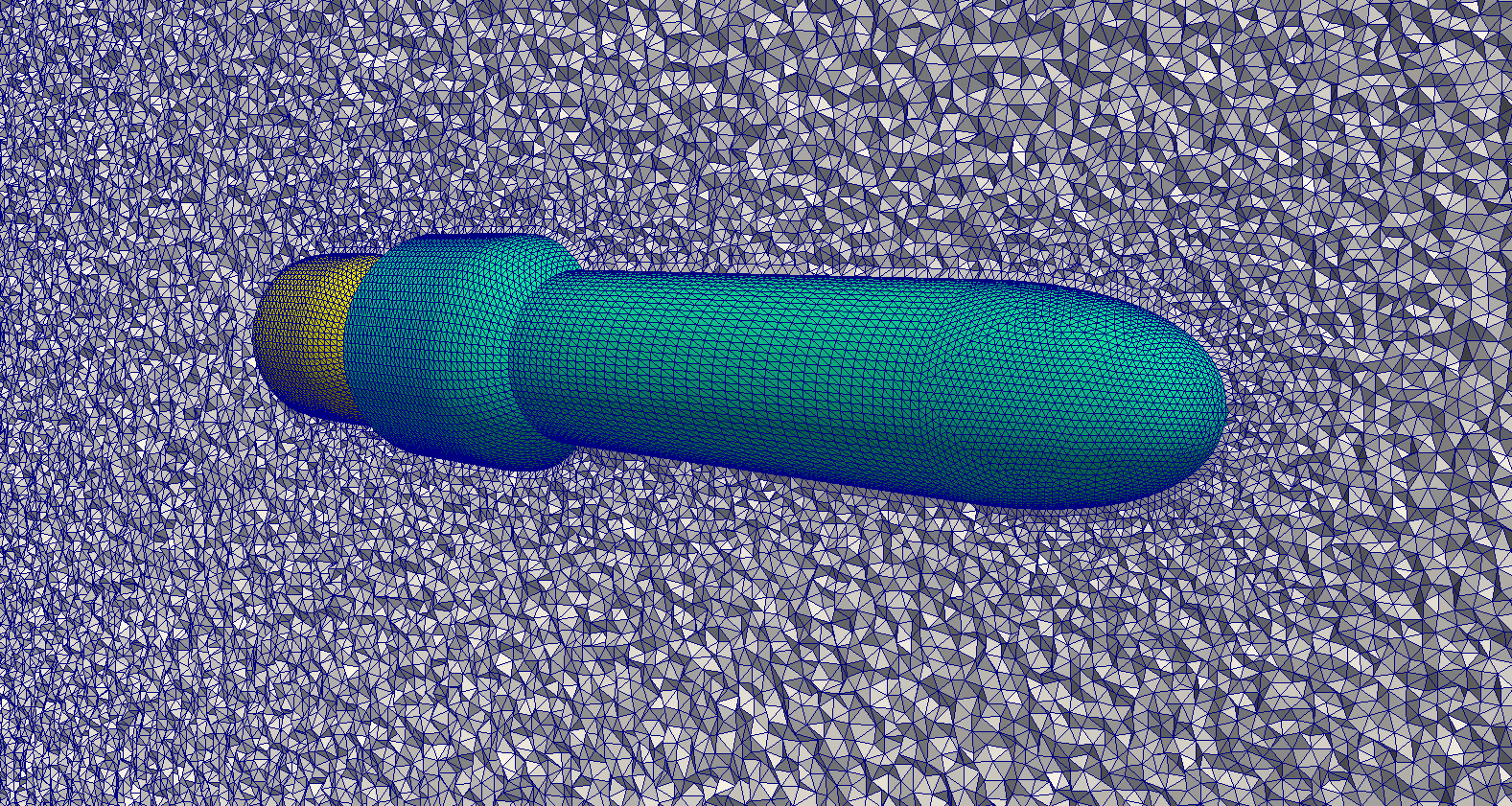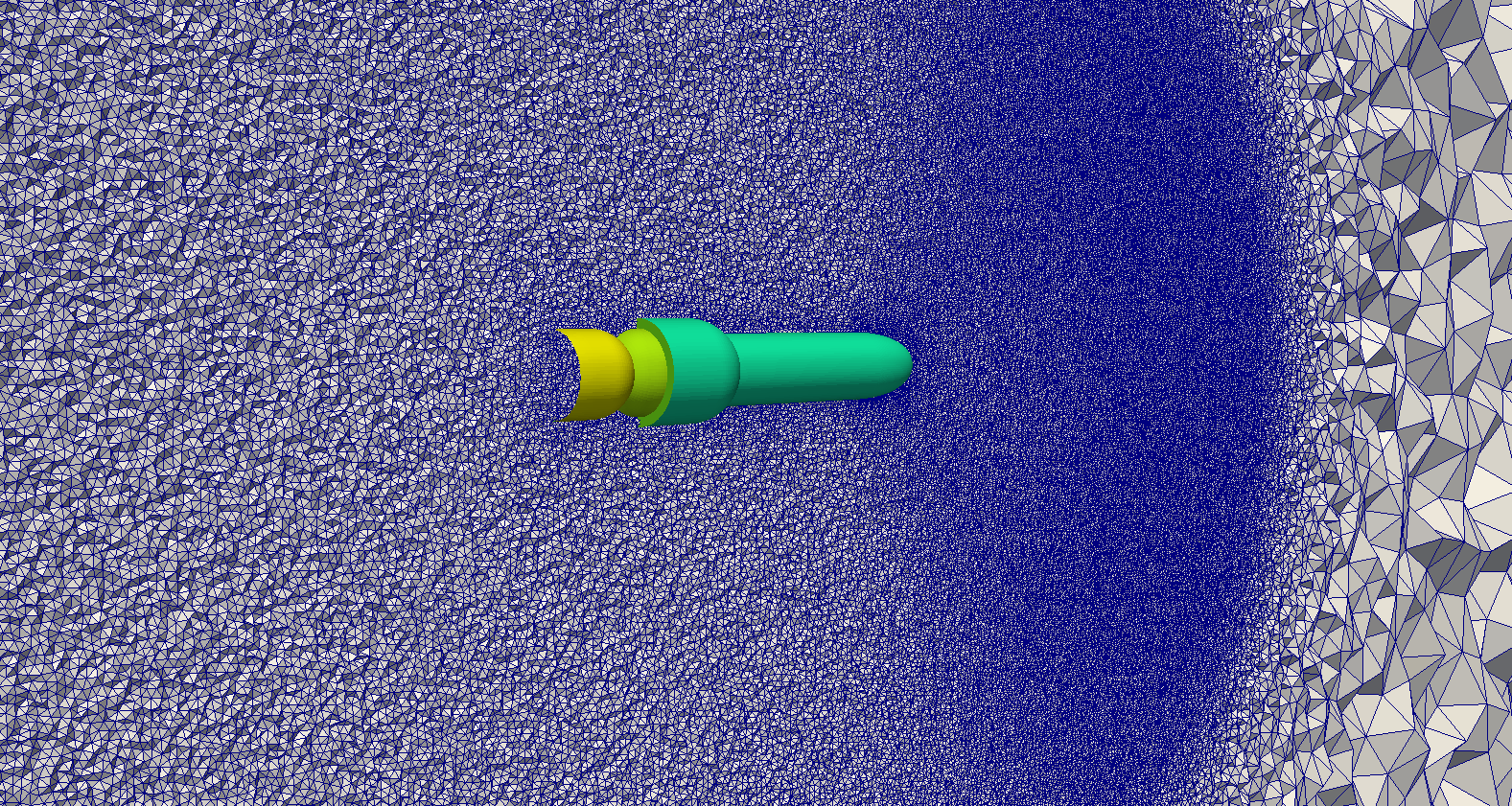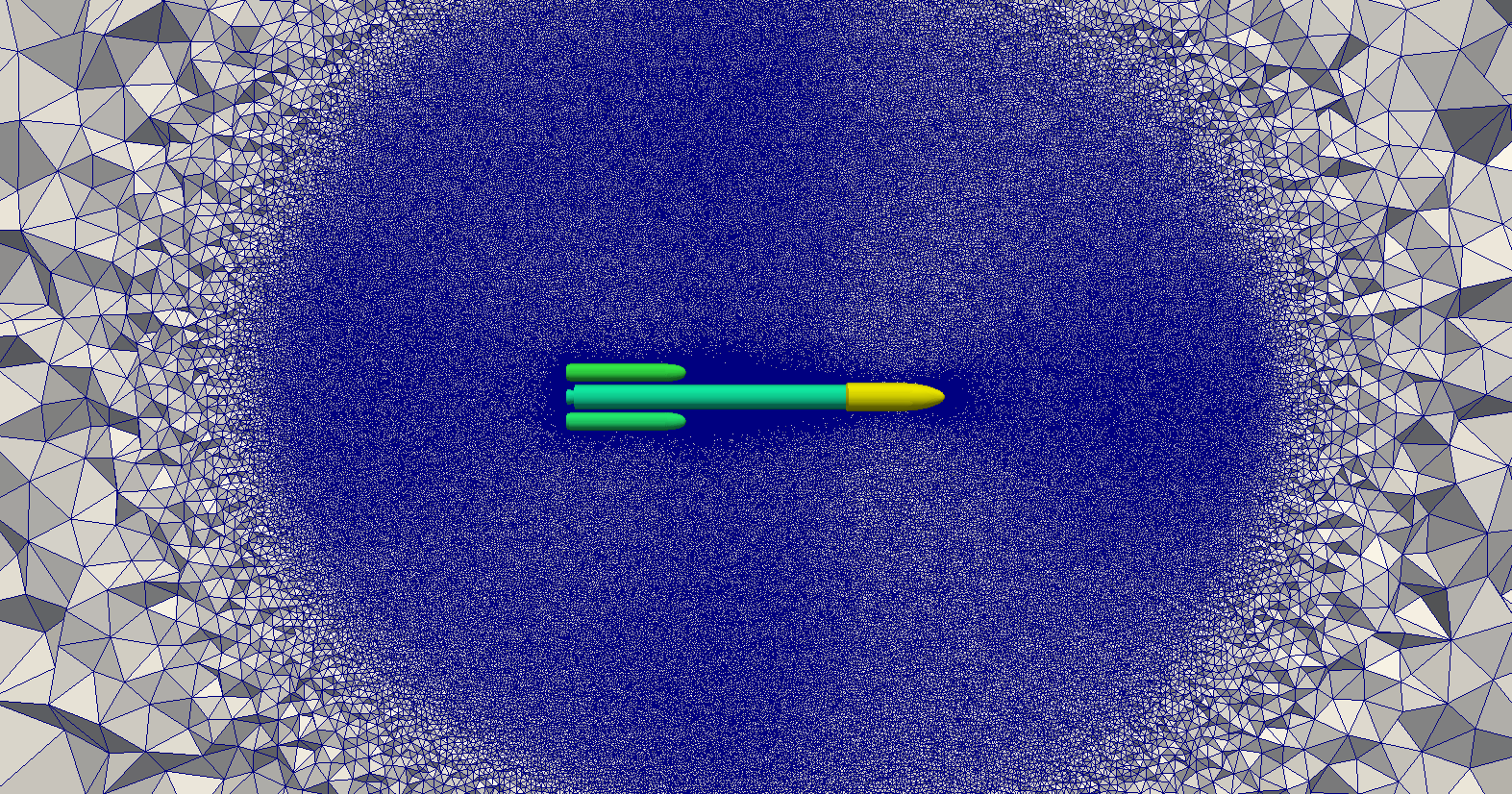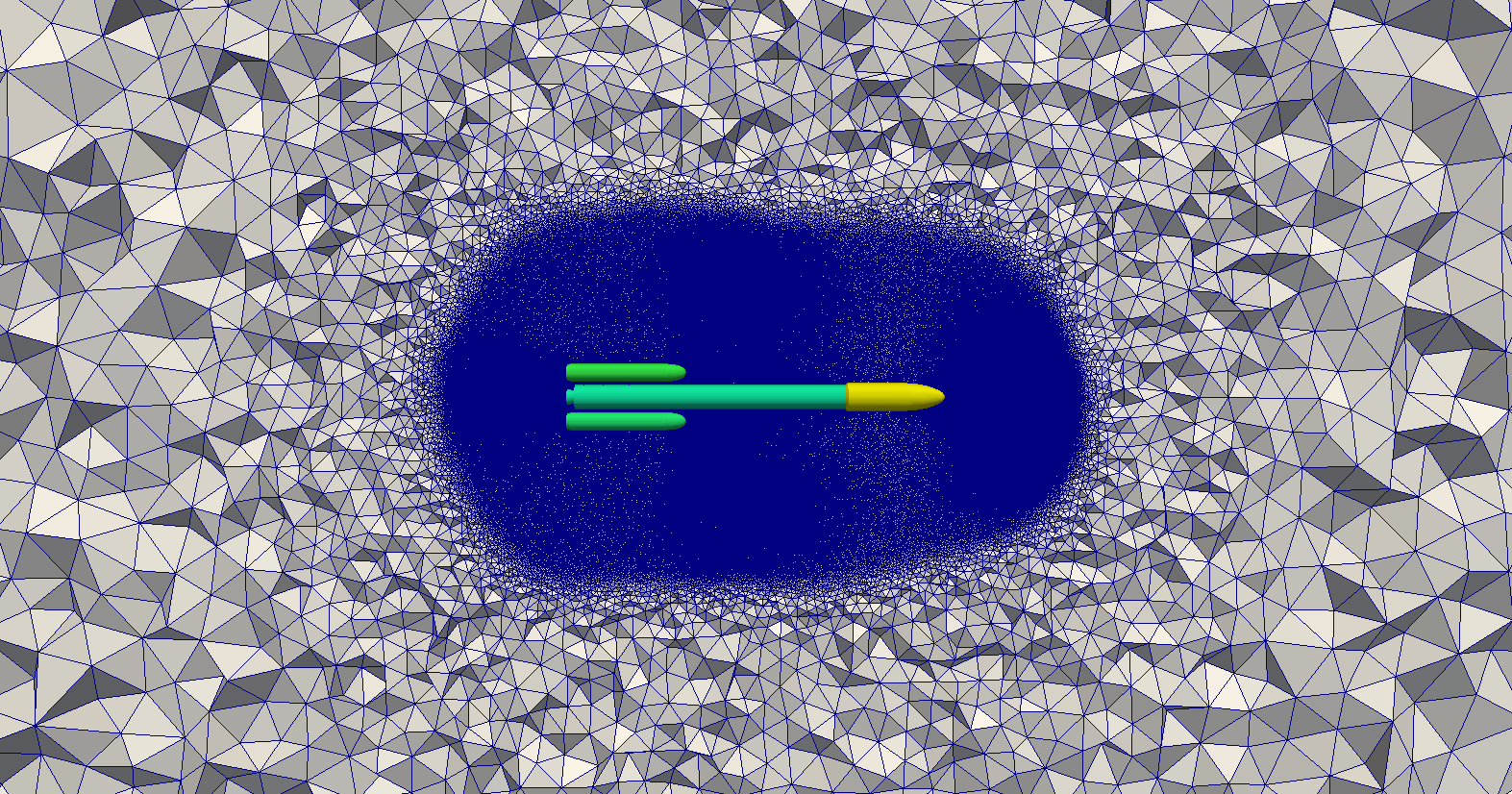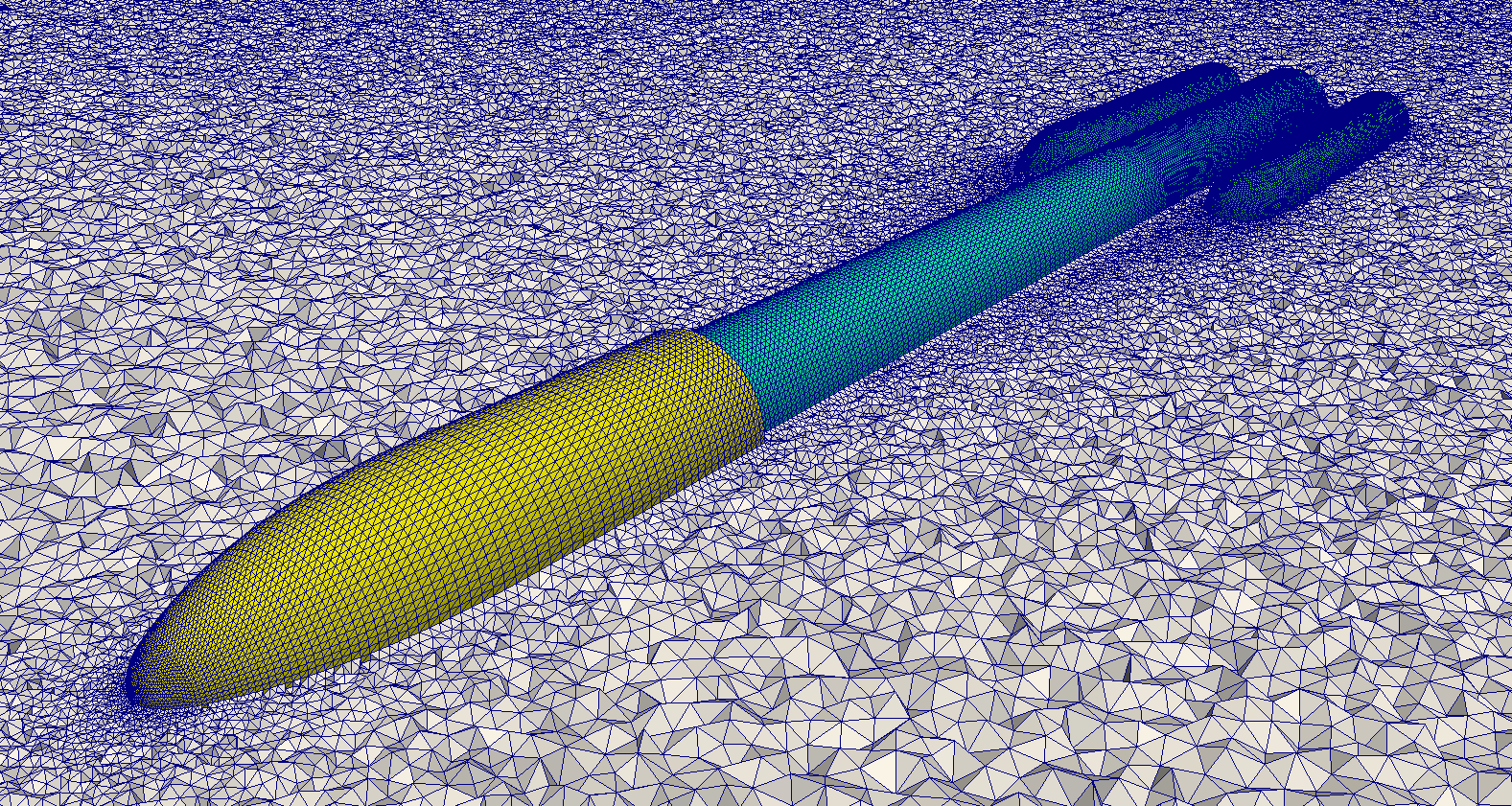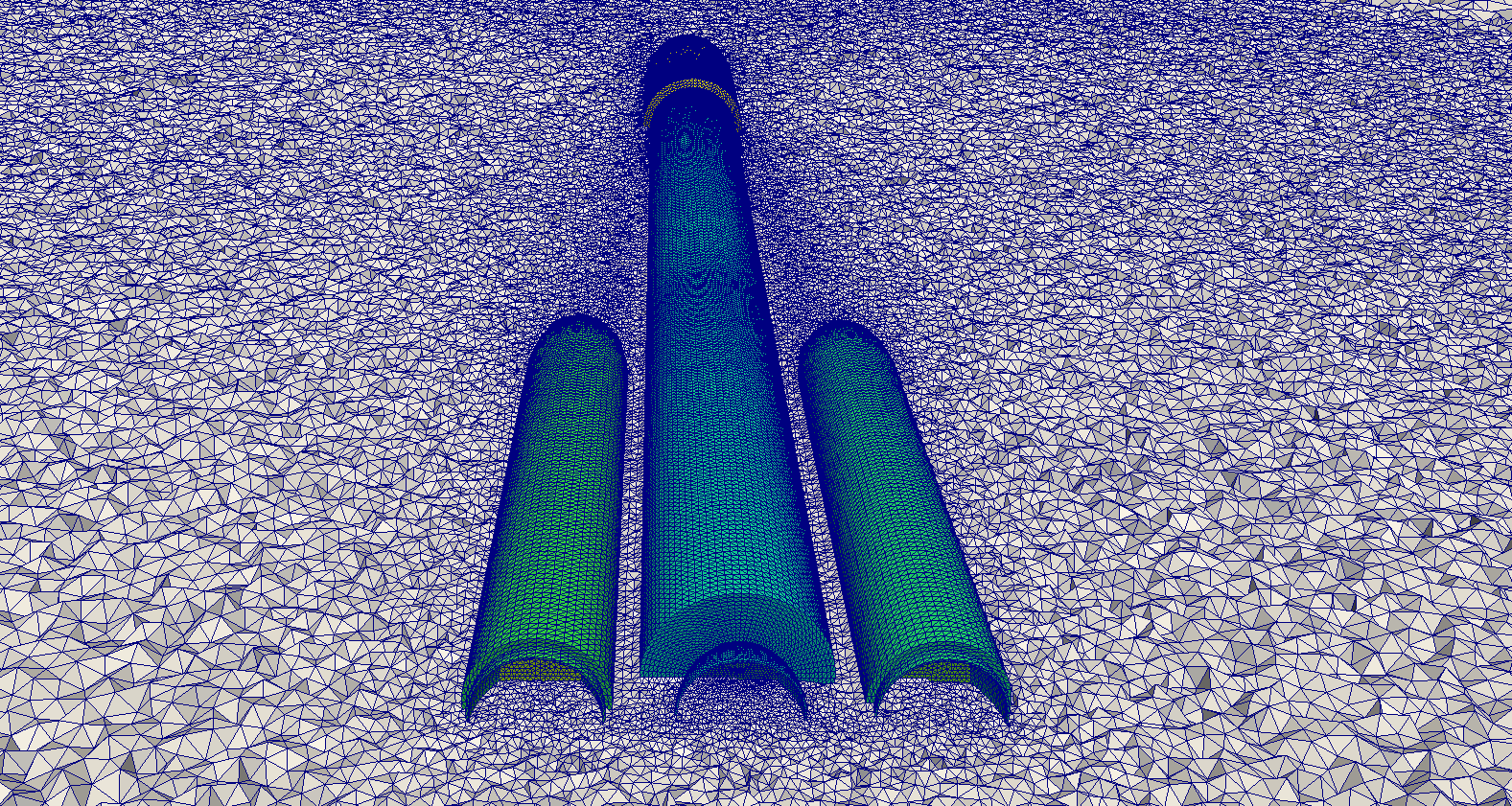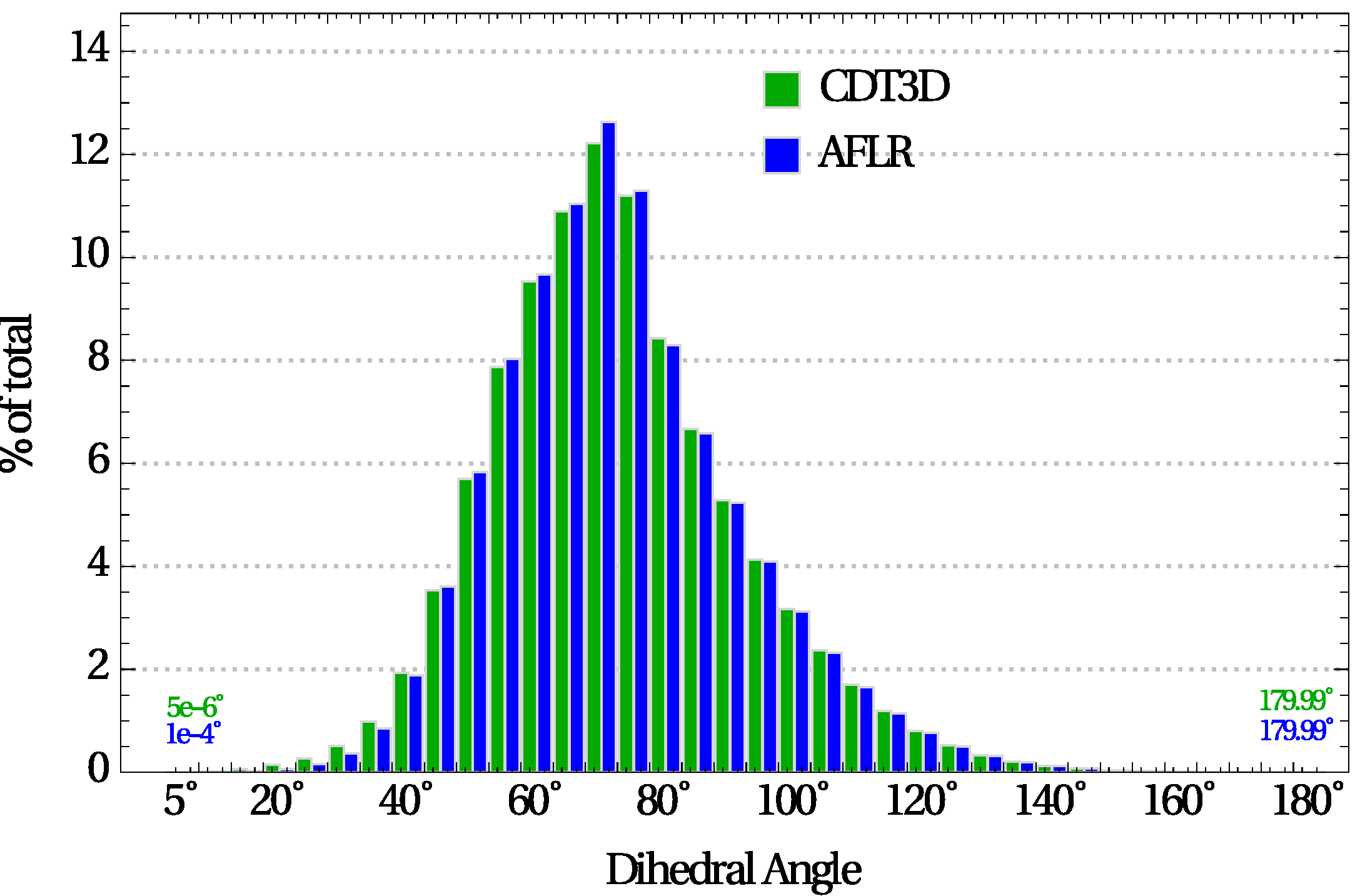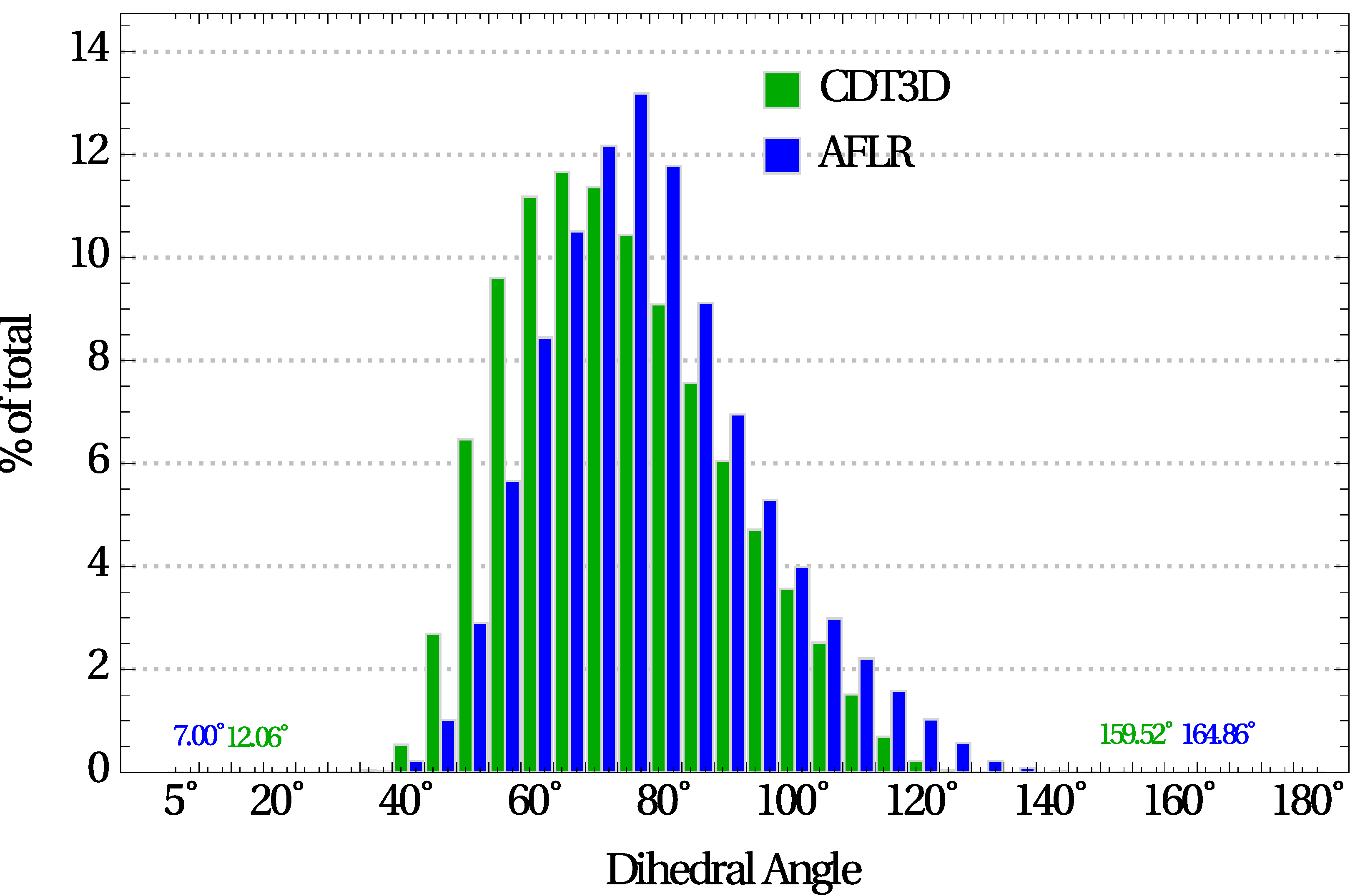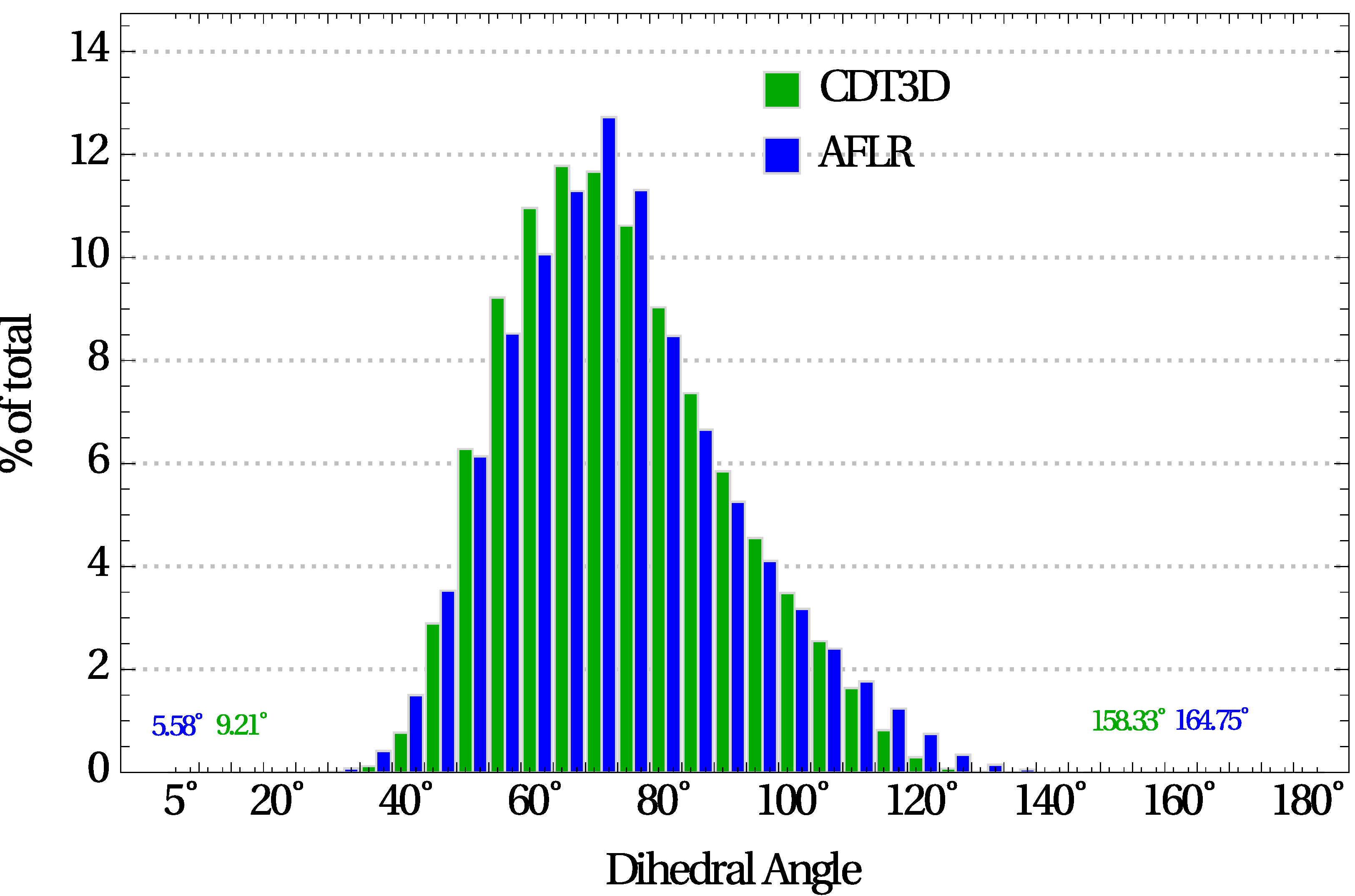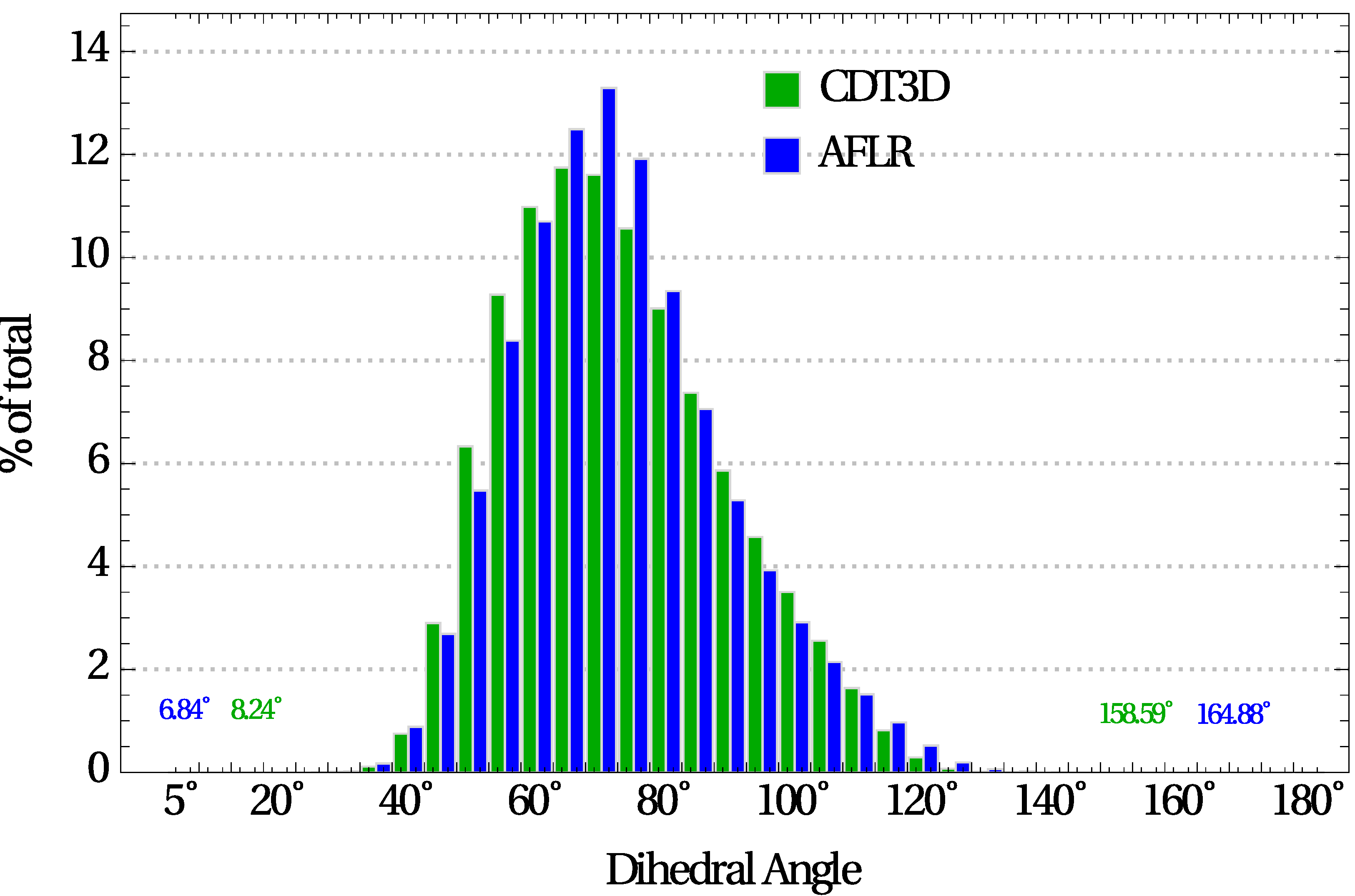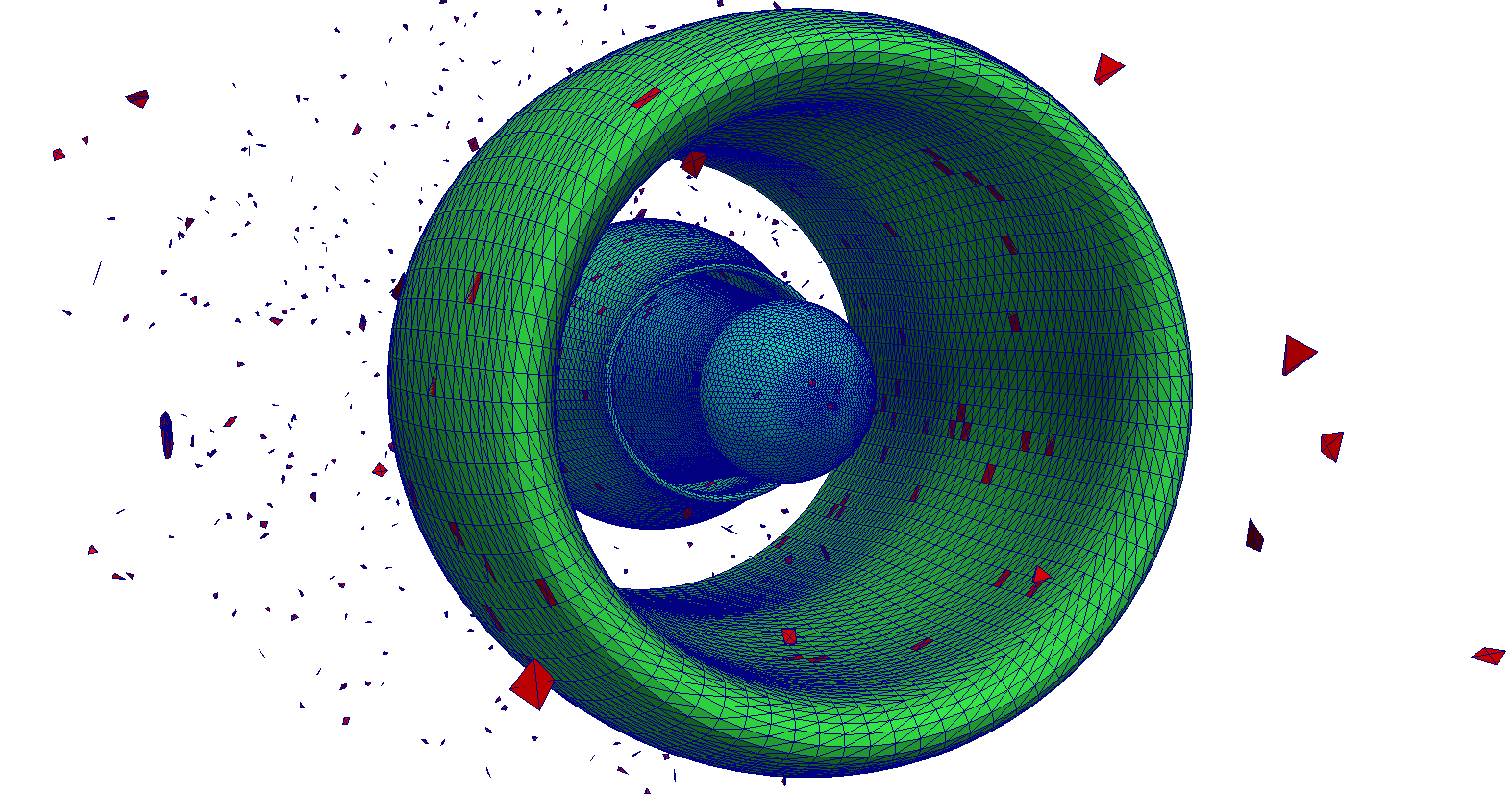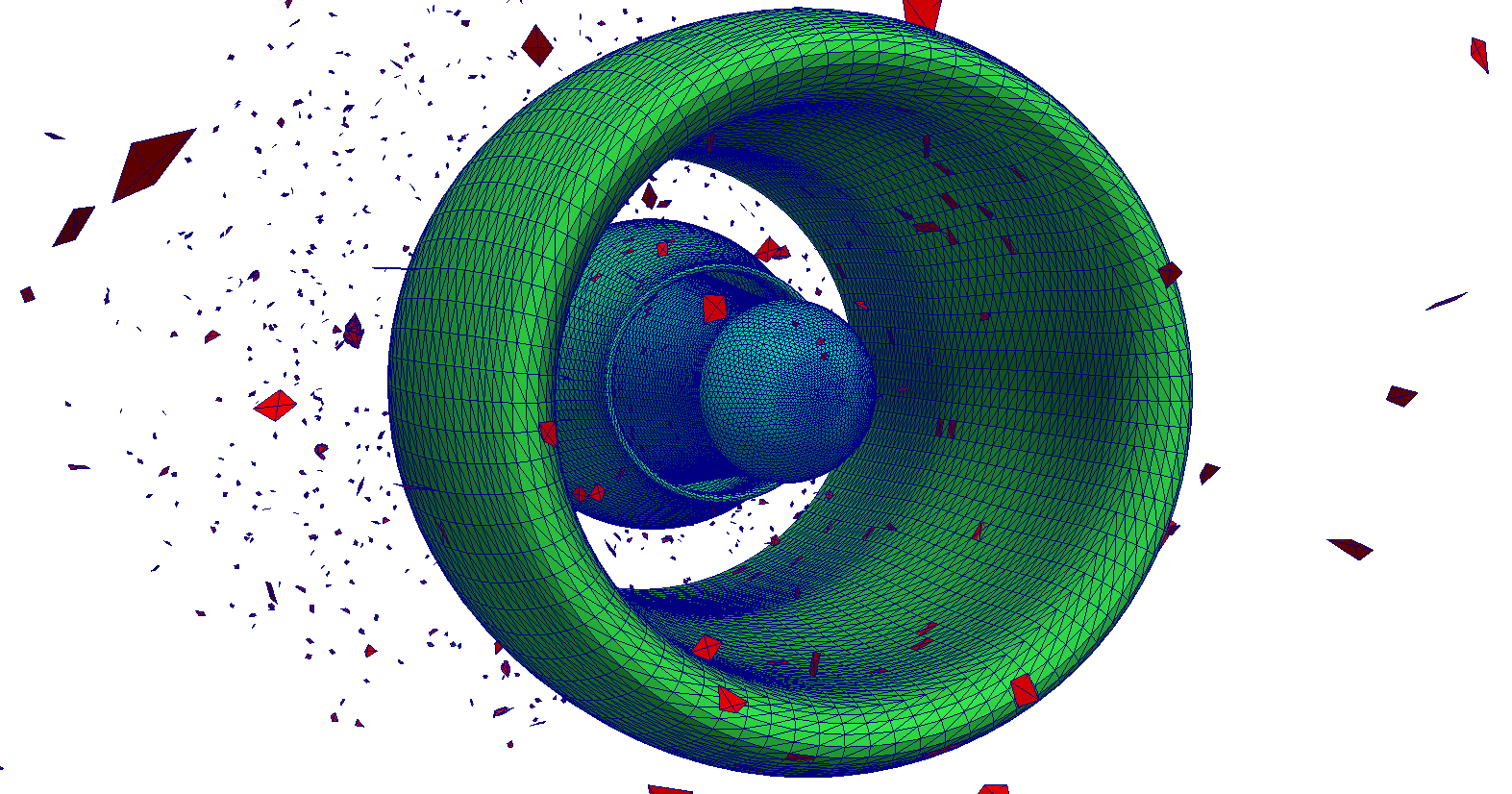Difference between revisions of "Isotropic Mesh Generation"
(→nacelle, rocket, and lv2b pg. 122-124) |
(→nacelle, rocket, and lv2b pg. 122-124) |
||
| Line 103: | Line 103: | ||
|- | |- | ||
! !! colspan=2 | AFLR !! colspan=2 | 0.30 !! colspan=2 | 0.7 !! colspan=2 | 2 !! colspan=2 | 3 !! colspan=2 | 0.5 !! colspan=2 | 1 !! colspan=2 | 2 !! colspan=2 | 165° !! colspan=2 | 120° !! colspan=2 | 0 | ! !! colspan=2 | AFLR !! colspan=2 | 0.30 !! colspan=2 | 0.7 !! colspan=2 | 2 !! colspan=2 | 3 !! colspan=2 | 0.5 !! colspan=2 | 1 !! colspan=2 | 2 !! colspan=2 | 165° !! colspan=2 | 120° !! colspan=2 | 0 | ||
| + | |} | ||
| + | |||
| + | {| class="wikitable" | ||
| + | |+ Evaluation results on unstructured grid generation. CDT3D is compared with state-of-the-art technology AFLR v 16.9.19 [132]. CDT3D's runs are performed with 1 and 12 hardware cores. AFLR is a sequential code. Table 18 lists the parameters of the evaluation. The sliver elements have a dihedral angle smaller than 2° or larger than 178°. Initial grid includes Delaunay tetrahedralization and Boundary Recovery. The I/O time is not included. The experiments were performed on a Dell workstation with Linux Ubuntu 12.10, a 12-core Intel Xeon X5690@3.47 GHz CPU, and 96 GB RAM. | ||
| + | |- | ||
| + | ! colspan=2 | !! colspan=2 | %Slivers<br>(w/o improv.)<br>(x10<sup>-3</sup>) !! colspan=2 | #Tets<br>(w/ improv.)<br>(M) !! colspan=2 | Min/Max Angle<br>(w/ improv.)<br>(deg) !! colspan=4 | Time | ||
| + | |- | ||
| + | ! Case !! colspan=2 | Software !! colspan=2 | #Cores !! colspan=2 | !! colspan=2 | 1261 !! colspan=2 | 3860 !! colspan=2 | 9644 | ||
| + | |- | ||
| + | ! #edges !! colspan=2 | 8340 !! colspan=2 | 4158 !! colspan=2 | 8433 !! colspan=2 | 3921 !! colspan=2 | 11574 !! colspan=2 | 28926 | ||
| + | |- | ||
| + | ! #faces !! colspan=2 | 5560 !! colspan=2 | 2772 !! colspan=2 | 5622 !! colspan=2 | 2614 !! colspan=2 | 7716 !! colspan=2 | 19284 | ||
| + | |- | ||
| + | ! scope="rowspan=2" | Software | ||
| + | | TetGen || CDT3D || TetGen || CDT3D || TetGen || CDT3D || TetGen || CDT3D || TetGen || CDT3D || TetGen || CDT3D | ||
| + | |- | ||
| + | ! scope="row" | #Stpts (boundary) | ||
| + | | 0 || 0 || 0 || 0 || 0 || 0 || 1 || 0 || - || 0 || 0 || 0 | ||
| + | |- | ||
| + | ! scope="row" | #Stpts (volume) | ||
| + | | 7 || 2 || 0 || 0 || 8 || 5 || 59 || 28 || - || 0 || 0 || 0 | ||
| + | |- | ||
| + | ! scope="row" | Time (sec) | ||
| + | | 0.18 || 0.29 || 0.08 || 0.11 || 0.11 || 0.09 || 0.18 || 2.6 || - || 0.36 || 0.02 || 0.20 | ||
|} | |} | ||
Revision as of 12:19, 27 March 2018
Contents
Sphere and Two Blades with Merging Wakes and a Symmetry Plane
Cuts of tetrahedral grids of a sphere generated for varied cdfm ∈ [0, 1]. Blue
corresponds to larger values of the distribution function. Red corresponds to smaller values
of the distribution function.
Cuts of tetrahedral grids of two blades with merging wakes and a symmetry
plane enclosed in an outer boundary generated for varied cdfm ∈ [0, 1] (shown in
(c)-(f)).
The input surface is depicted in (a)-(b). The wake region is modeled as an embedded/
transparent delete surface.
Element angle distribution (in 5-deg increments) of grids of sphere, for varied
cdfm.
The dihedral angle extrema and the element count are reported for each grid.
Element angle distribution (in 5-deg increments) of grids of two blades with
merging wakes and a symmetry plane enclosed in an outer boundary, for varied cdfm.
The
dihedral angle extrema and the element count are reported for each grid.
nacelle, rocket, and lv2b pg. 122-124
- Surface grid of an aircraft nacelle with engine inside a section of wind tunnel.
- #points: 27184; #triangles: 54360
- Surface grid of a rocket with engine, nozzle and transparent internal data surfaces inside flow field.
- #points: 20228; #triangles: 40448
- Surface grid of a launch vehicle with solid boosters inside flow field (Lv2b).
- #points: 42020; #triangles: 84024
| Geometry | Software | cdfm | cdfn | mrecm | nqual | csmth | msmth | nsmth | angdfs | angqual | mdbs | |||||||||||
|---|---|---|---|---|---|---|---|---|---|---|---|---|---|---|---|---|---|---|---|---|---|---|
| Nacelle | CDT3D | 0.291 | 0.7 | 2 | 3 | 0.5 | 1 | 2 | 165° | 120° | 0 | |||||||||||
| AFLR | 0.50 | 0.7 | 2 | 3 | 0.5 | 1 | 2 | 165° | 120° | 0 | ||||||||||||
| Rocket | CDT3D | 0.20 | 0.7 | 2 | 3 | 0.5 | 1 | 2 | 165° | 120° | 0 | |||||||||||
| AFLR | 0.60 | 0.7 | 2 | 3 | 0.5 | 1 | 2 | 165° | 120° | 0 | ||||||||||||
| Lv2b | CDT3D | 0.234 | 0.7 | 2 | 3 | 0.5 | 1 | 2 | 165° | 120° | 0 | |||||||||||
| AFLR | 0.30 | 0.7 | 2 | 3 | 0.5 | 1 | 2 | 165° | 120° | 0 | ||||||||||||
| %Slivers (w/o improv.) (x10-3) |
#Tets (w/ improv.) (M) |
Min/Max Angle (w/ improv.) (deg) |
Time | |||||||||
|---|---|---|---|---|---|---|---|---|---|---|---|---|
| Case | Software | #Cores | 1261 | 3860 | 9644 | |||||||
| #edges | 8340 | 4158 | 8433 | 3921 | 11574 | 28926 | ||||||
| #faces | 5560 | 2772 | 5622 | 2614 | 7716 | 19284 | ||||||
| Software | TetGen | CDT3D | TetGen | CDT3D | TetGen | CDT3D | TetGen | CDT3D | TetGen | CDT3D | TetGen | CDT3D |
| #Stpts (boundary) | 0 | 0 | 0 | 0 | 0 | 0 | 1 | 0 | - | 0 | 0 | 0 |
| #Stpts (volume) | 7 | 2 | 0 | 0 | 8 | 5 | 59 | 28 | - | 0 | 0 | 0 |
| Time (sec) | 0.18 | 0.29 | 0.08 | 0.11 | 0.11 | 0.09 | 0.18 | 2.6 | - | 0.36 | 0.02 | 0.20 |
more nacelle, rocket, and lv2b pg. 125-127
